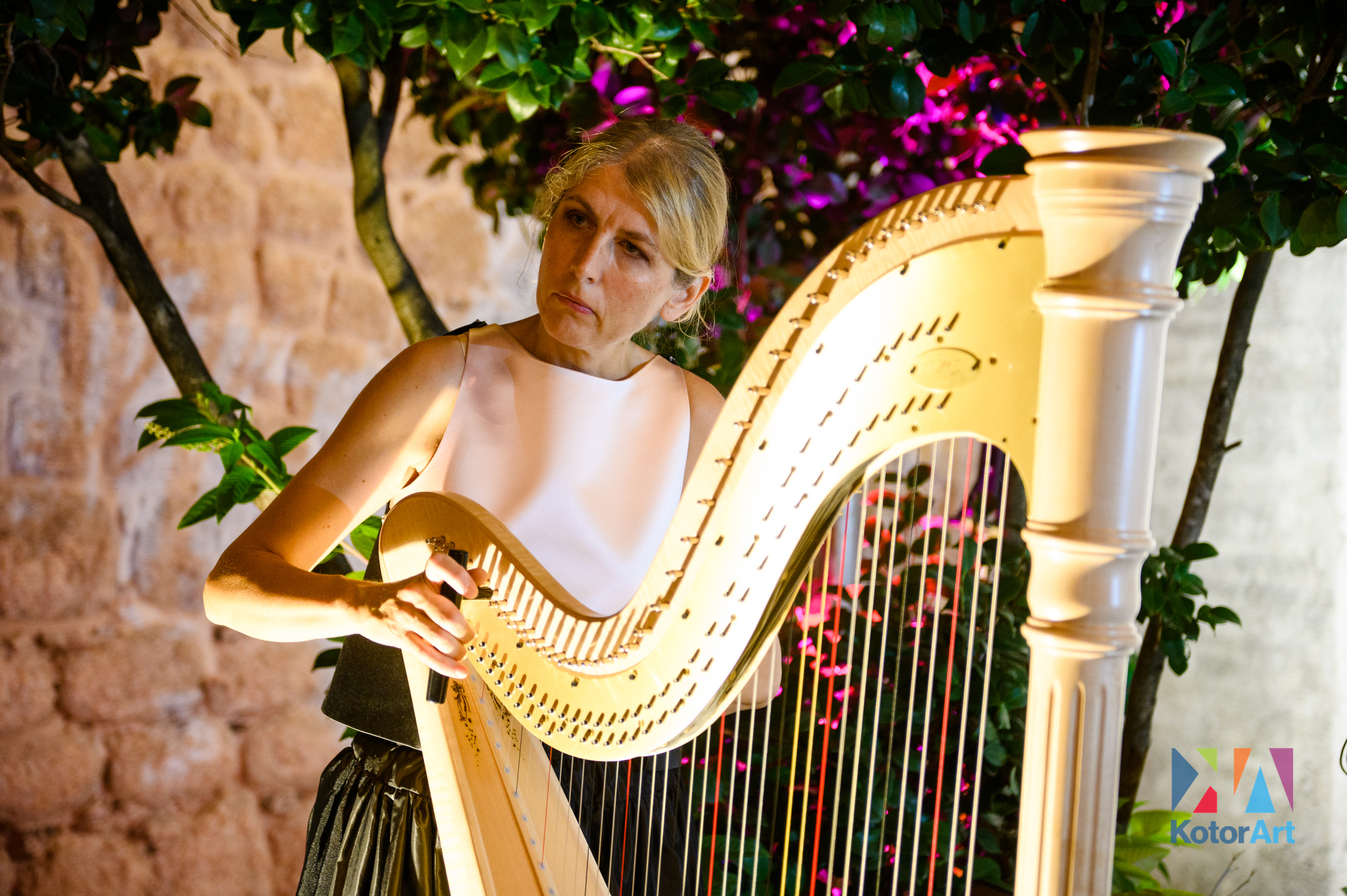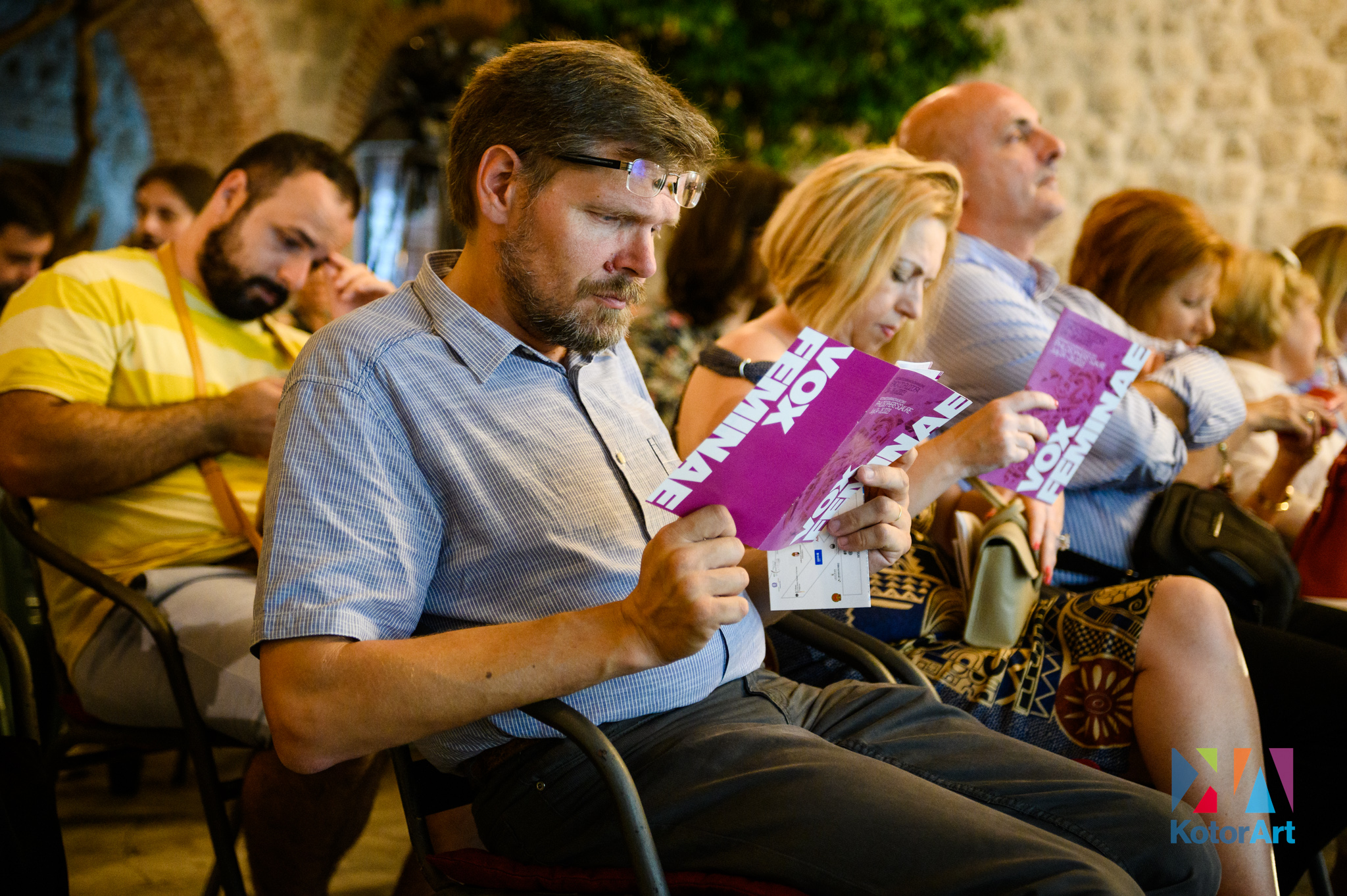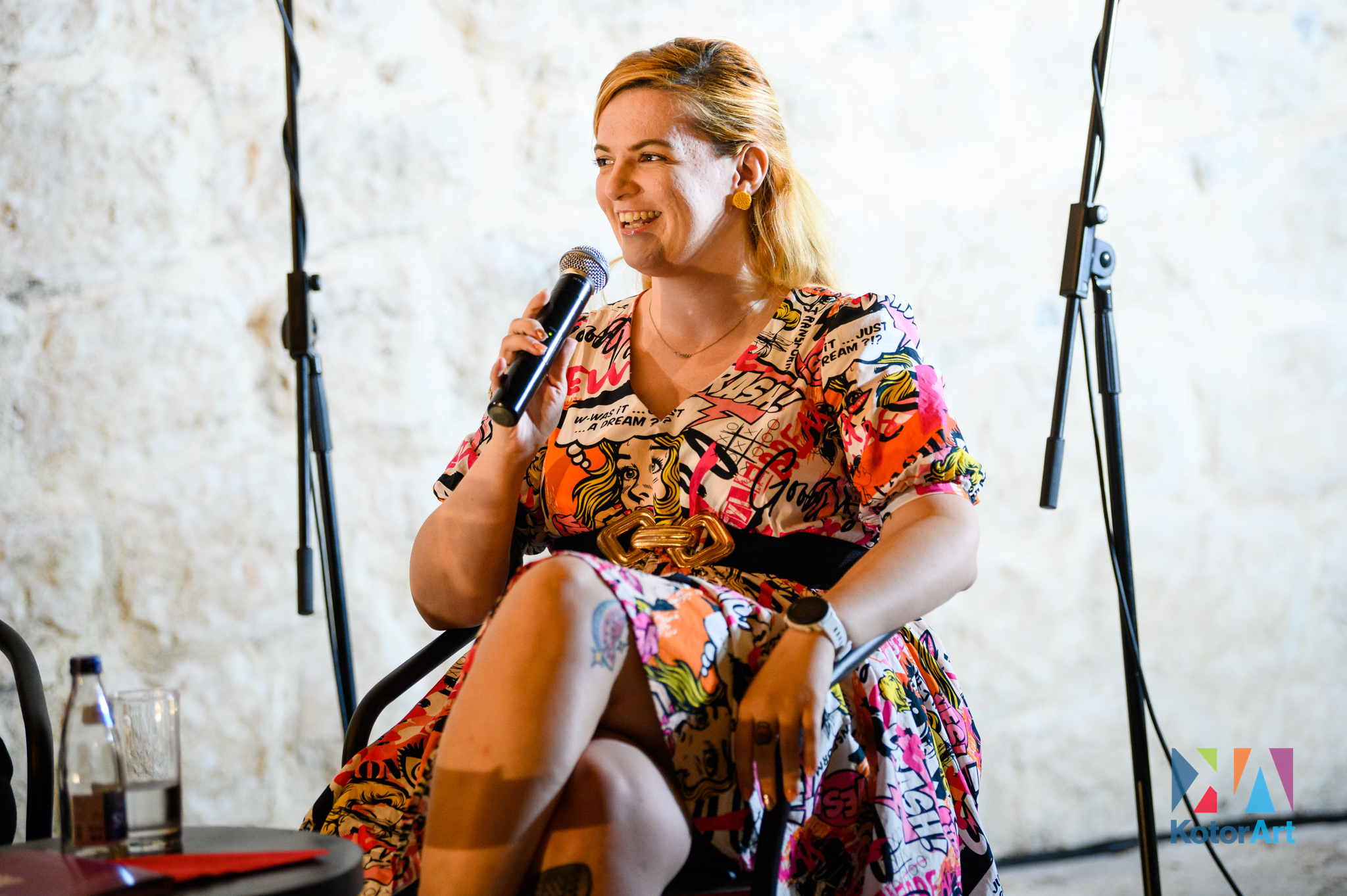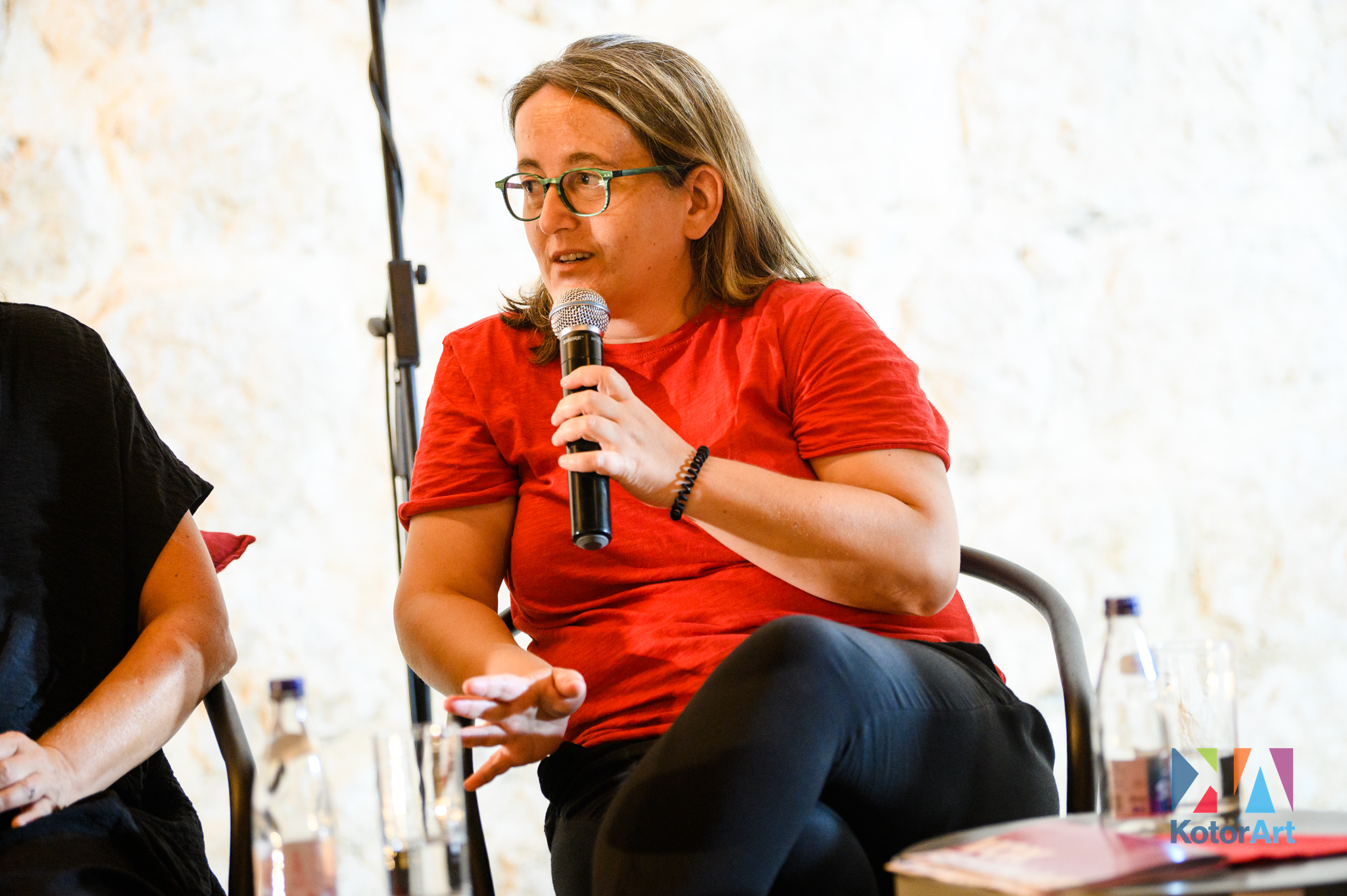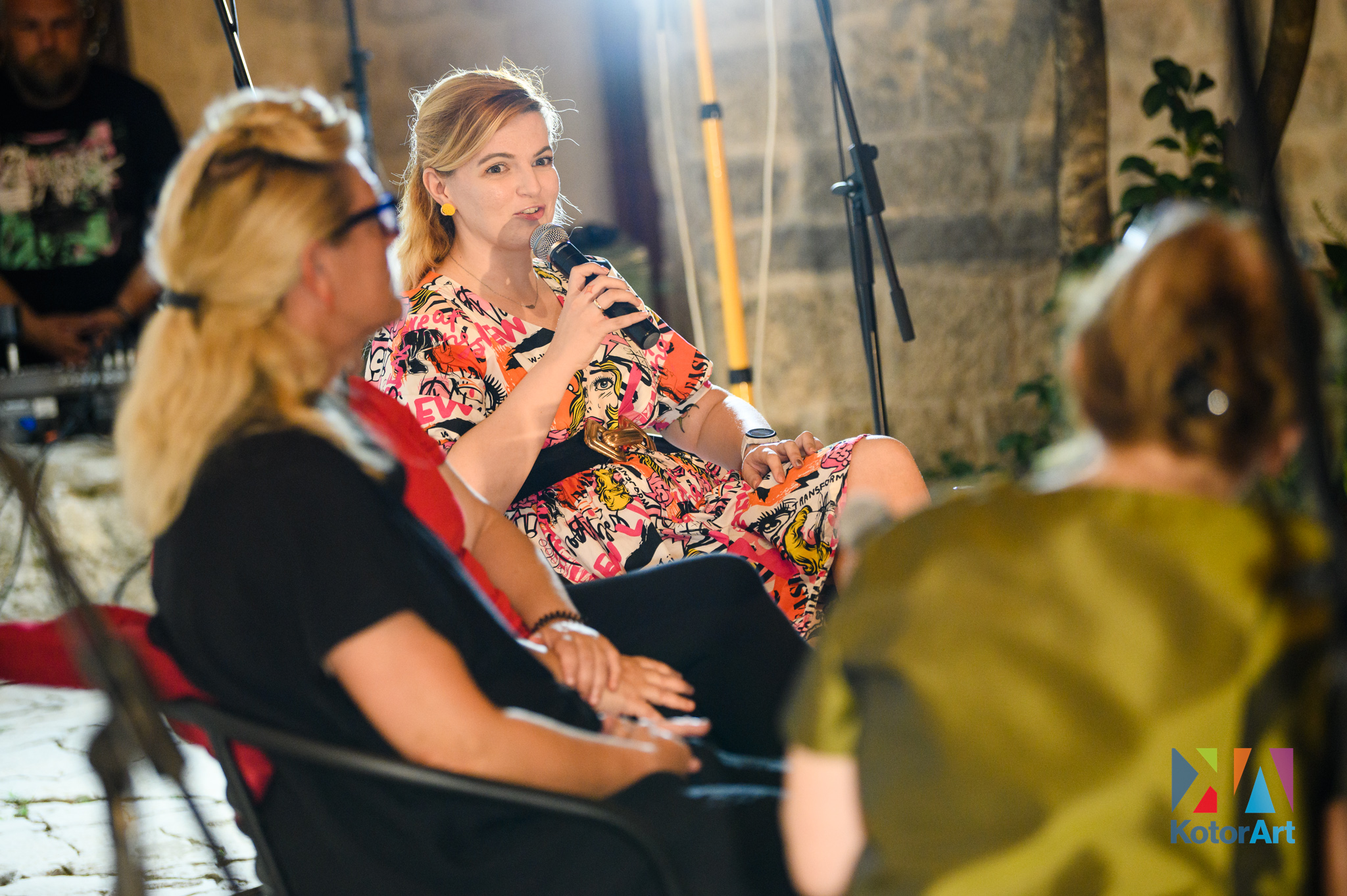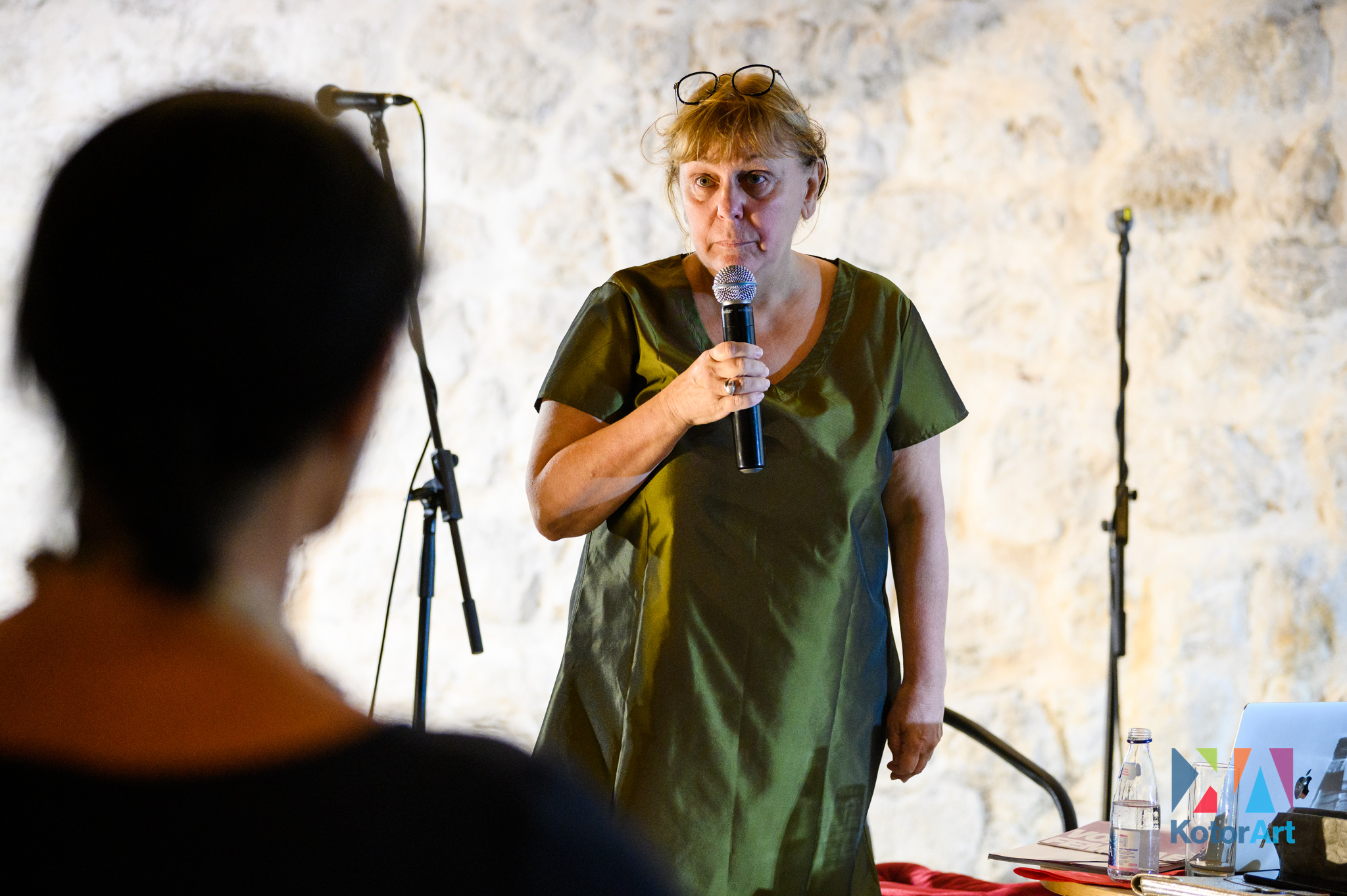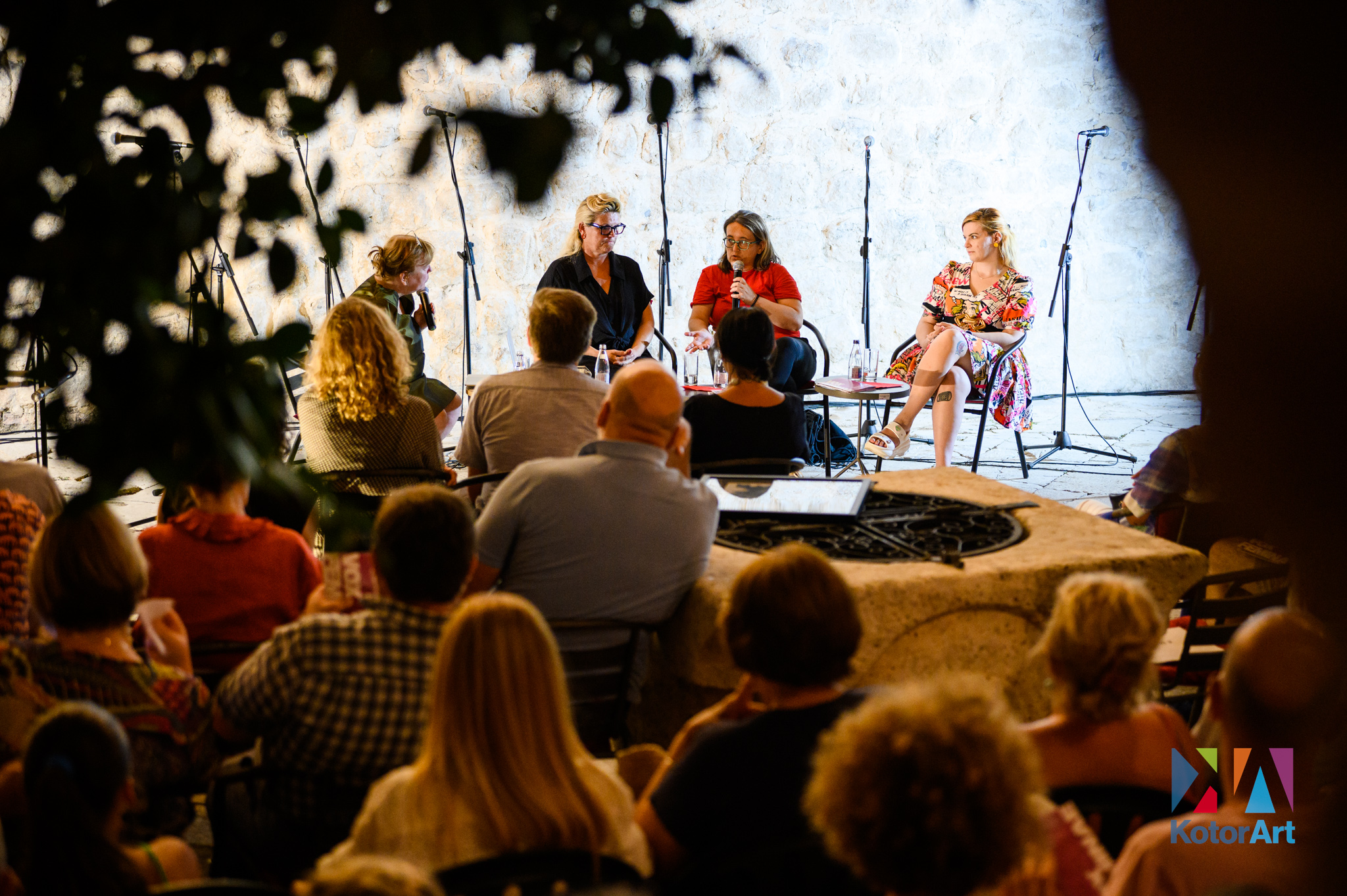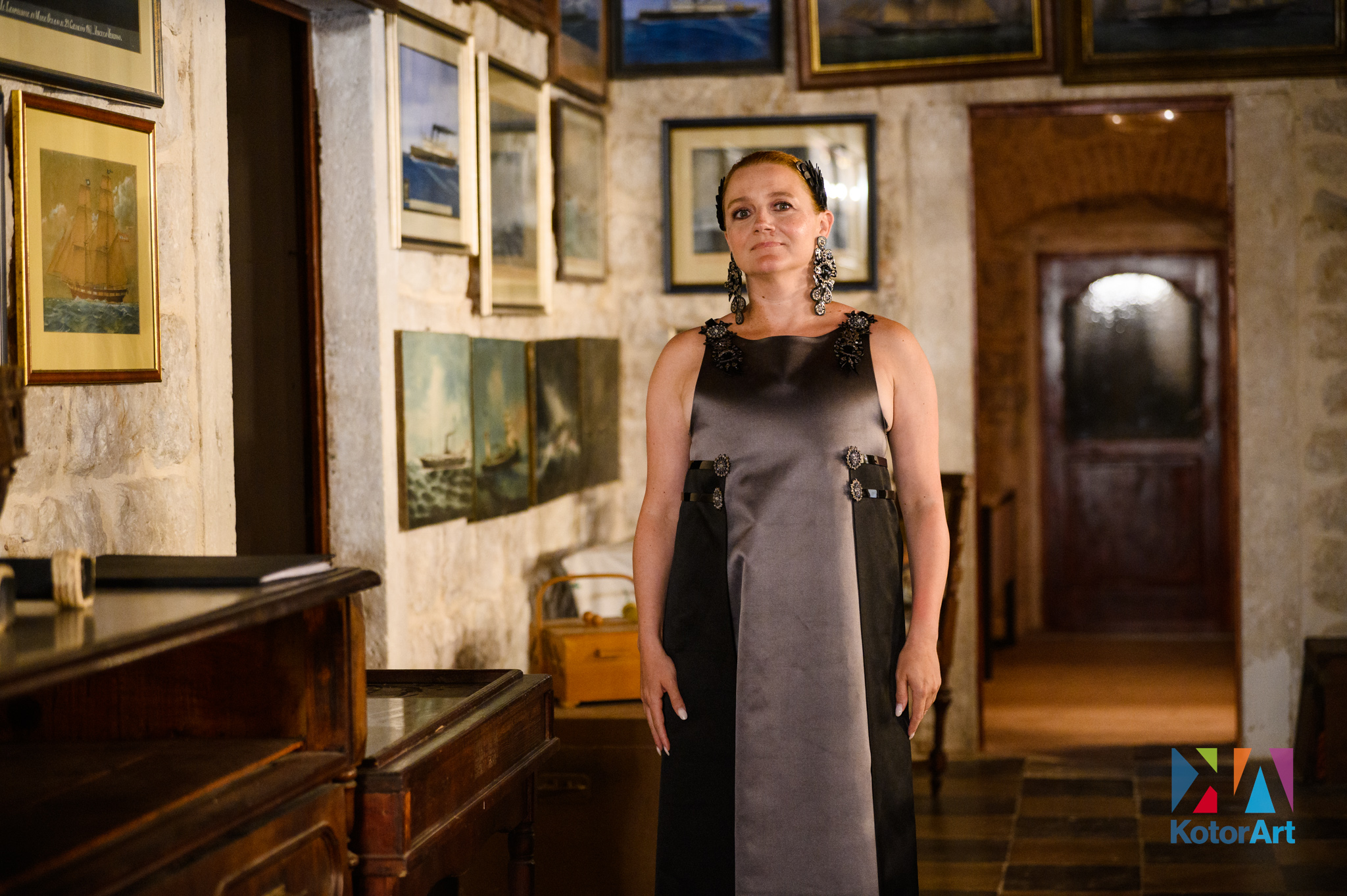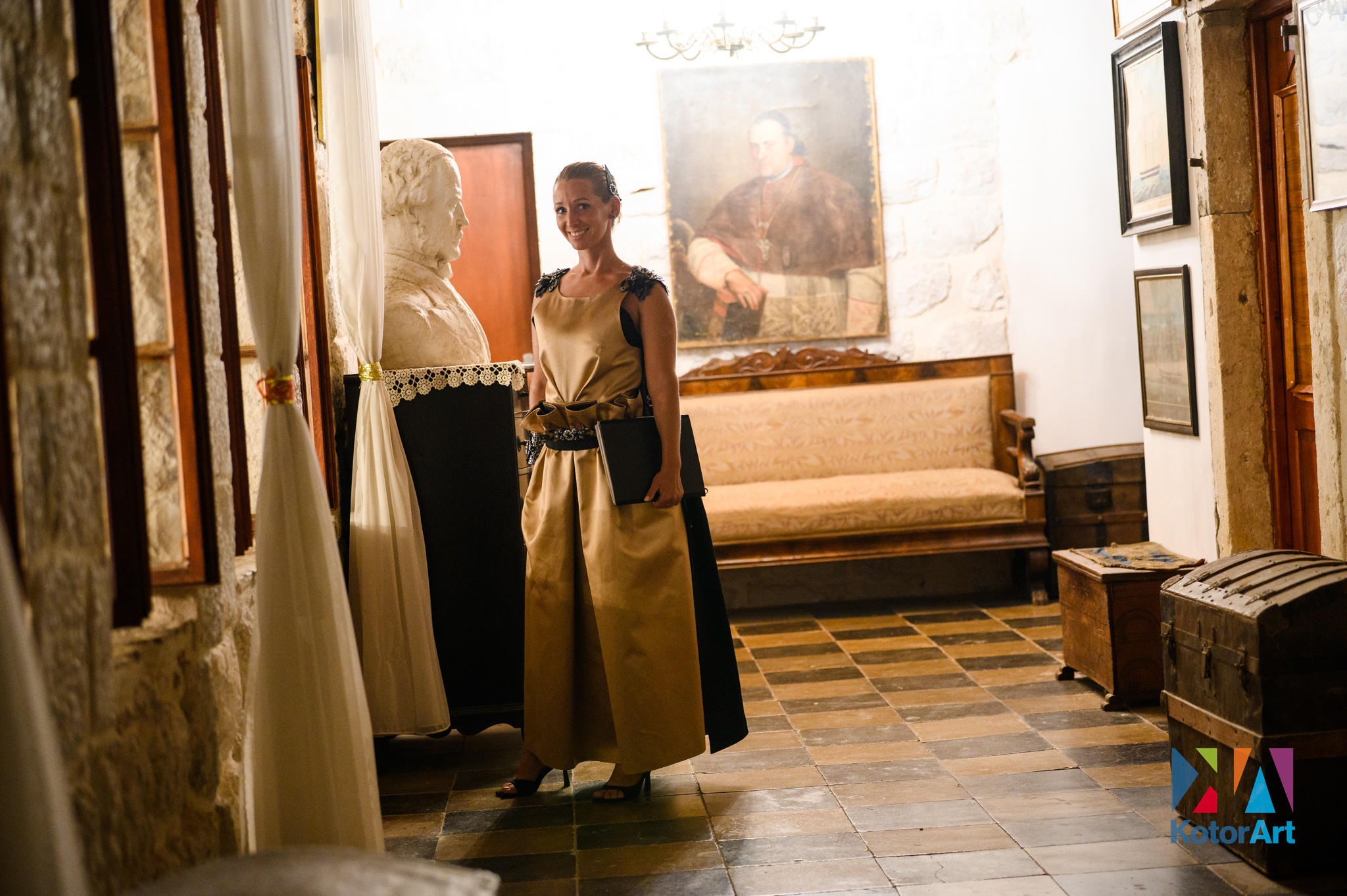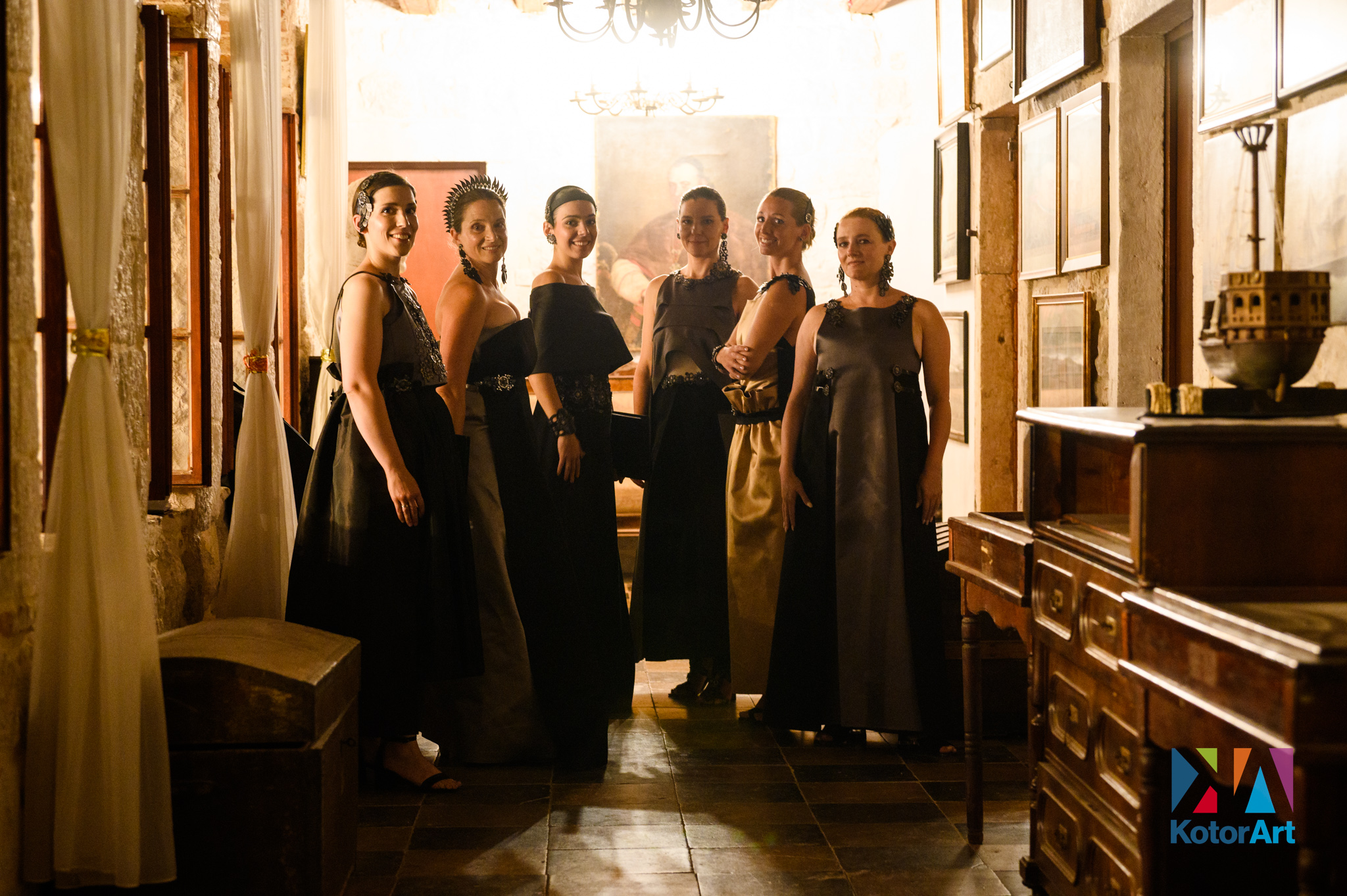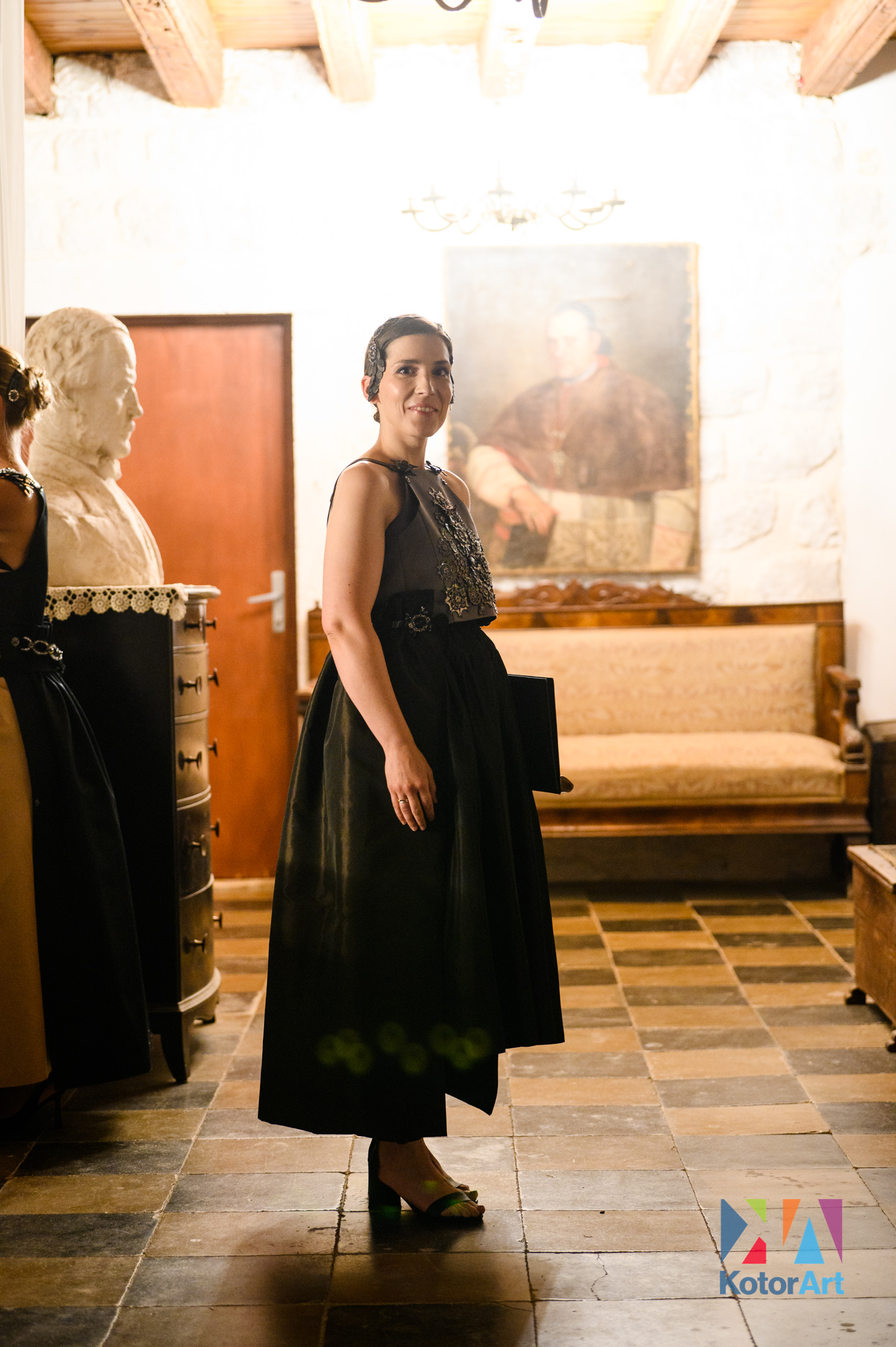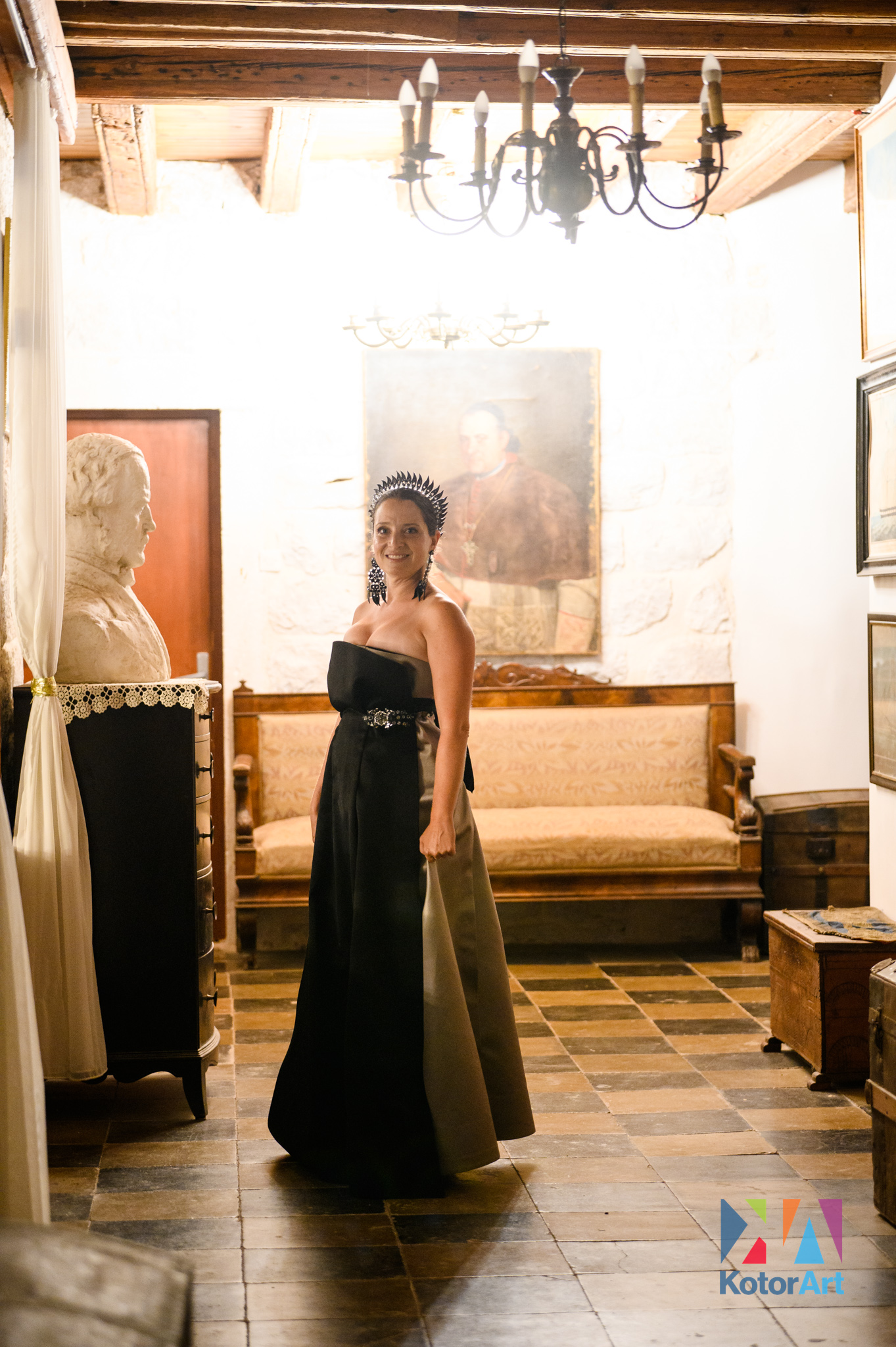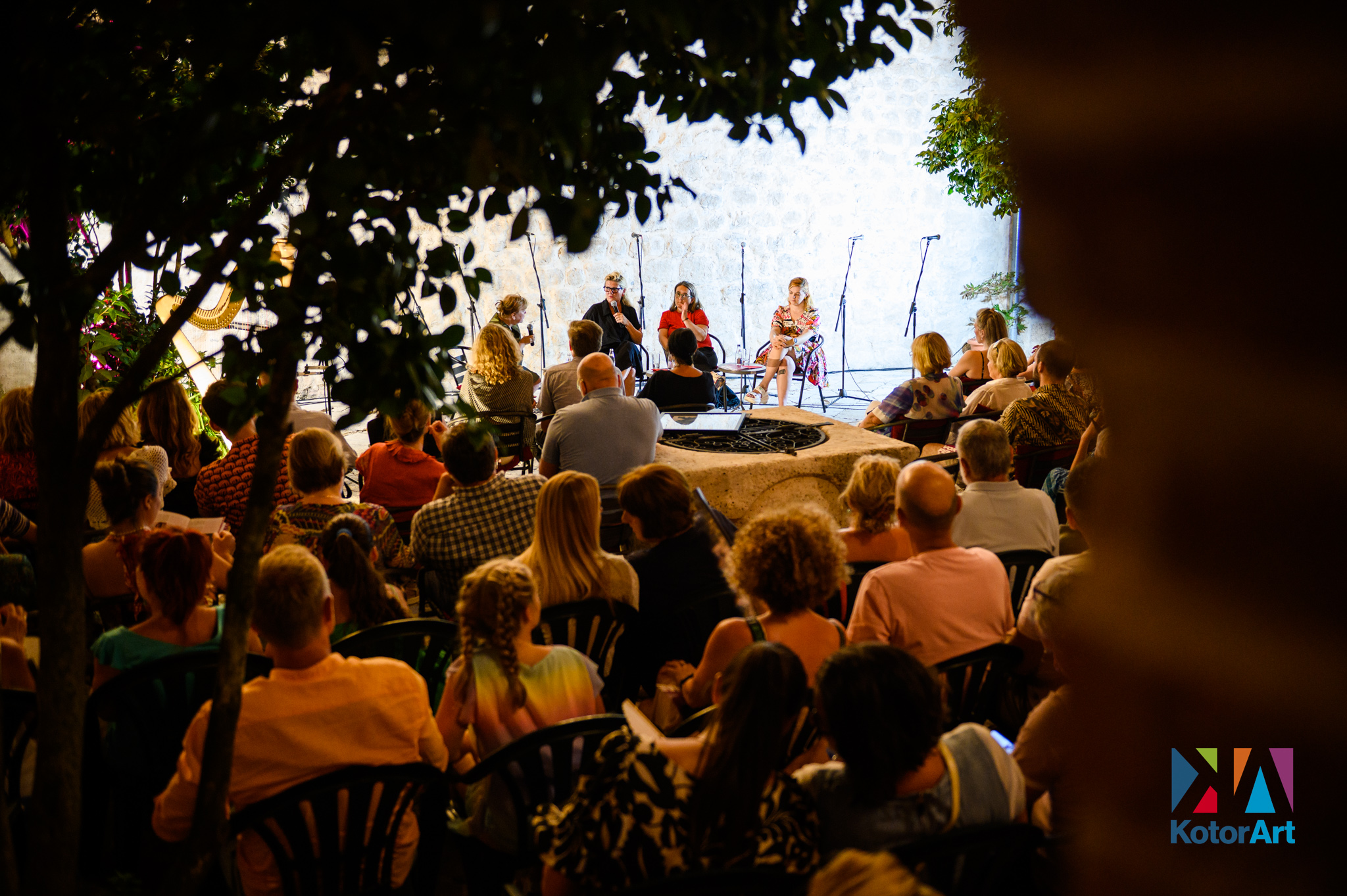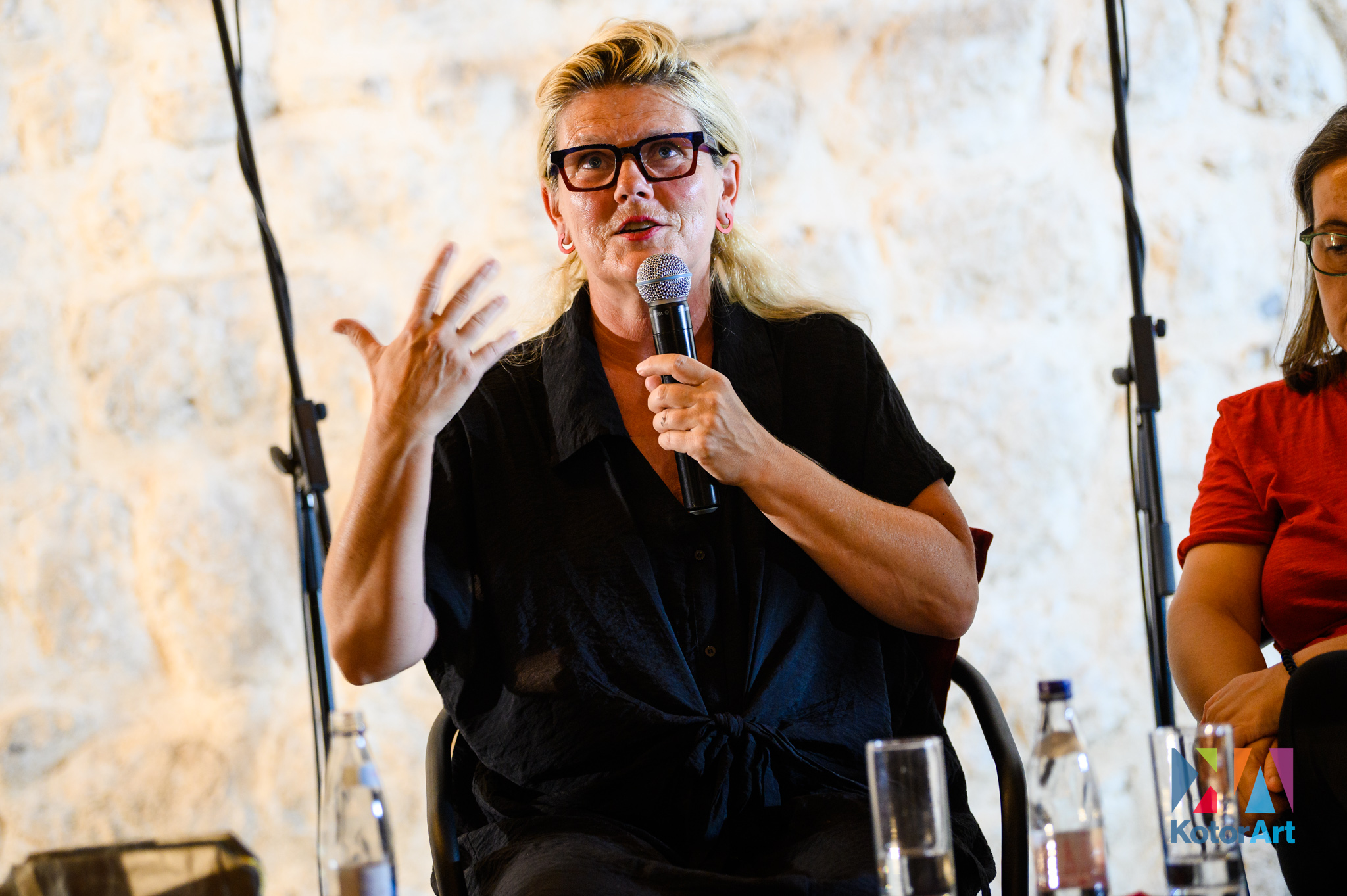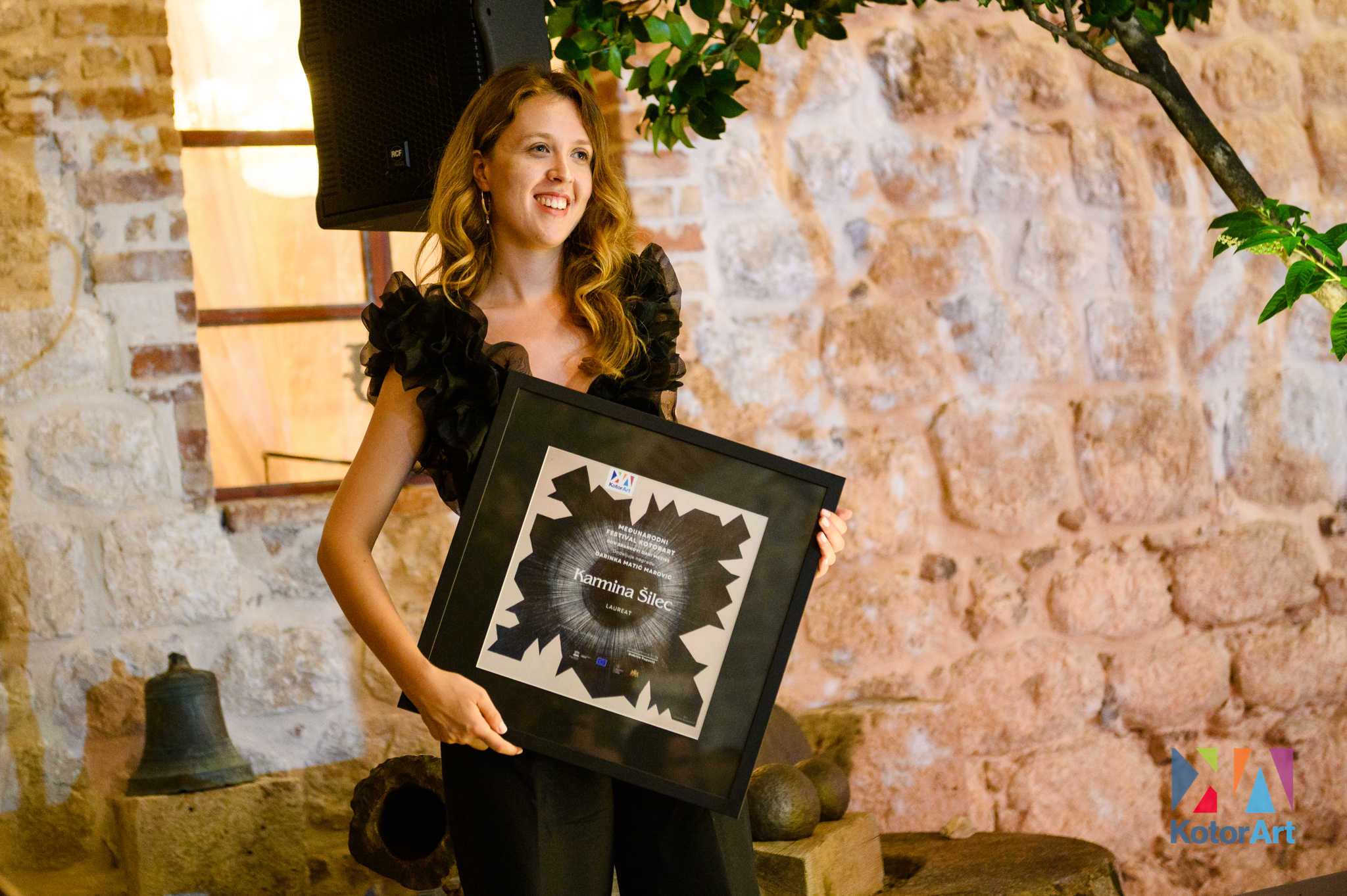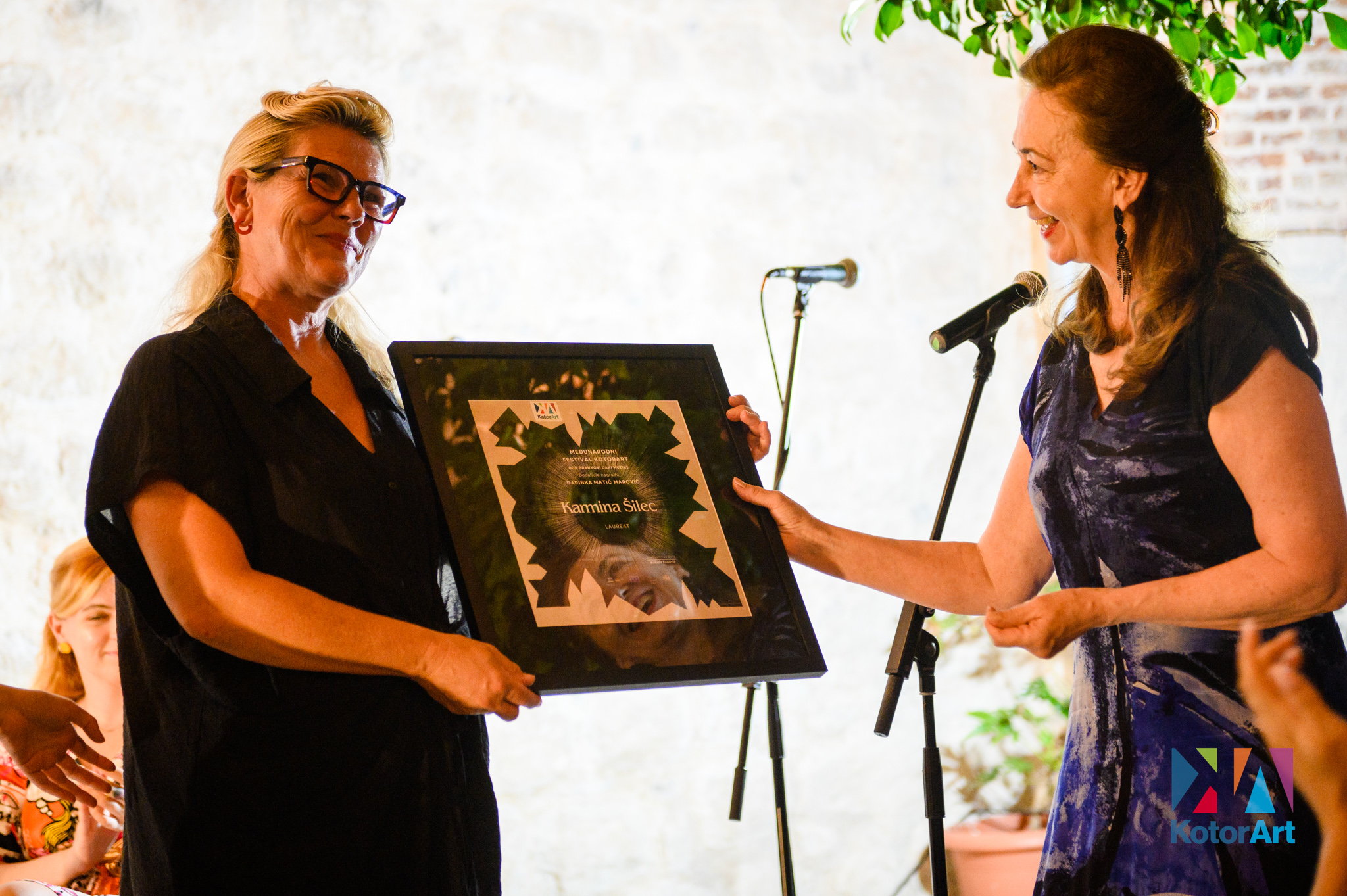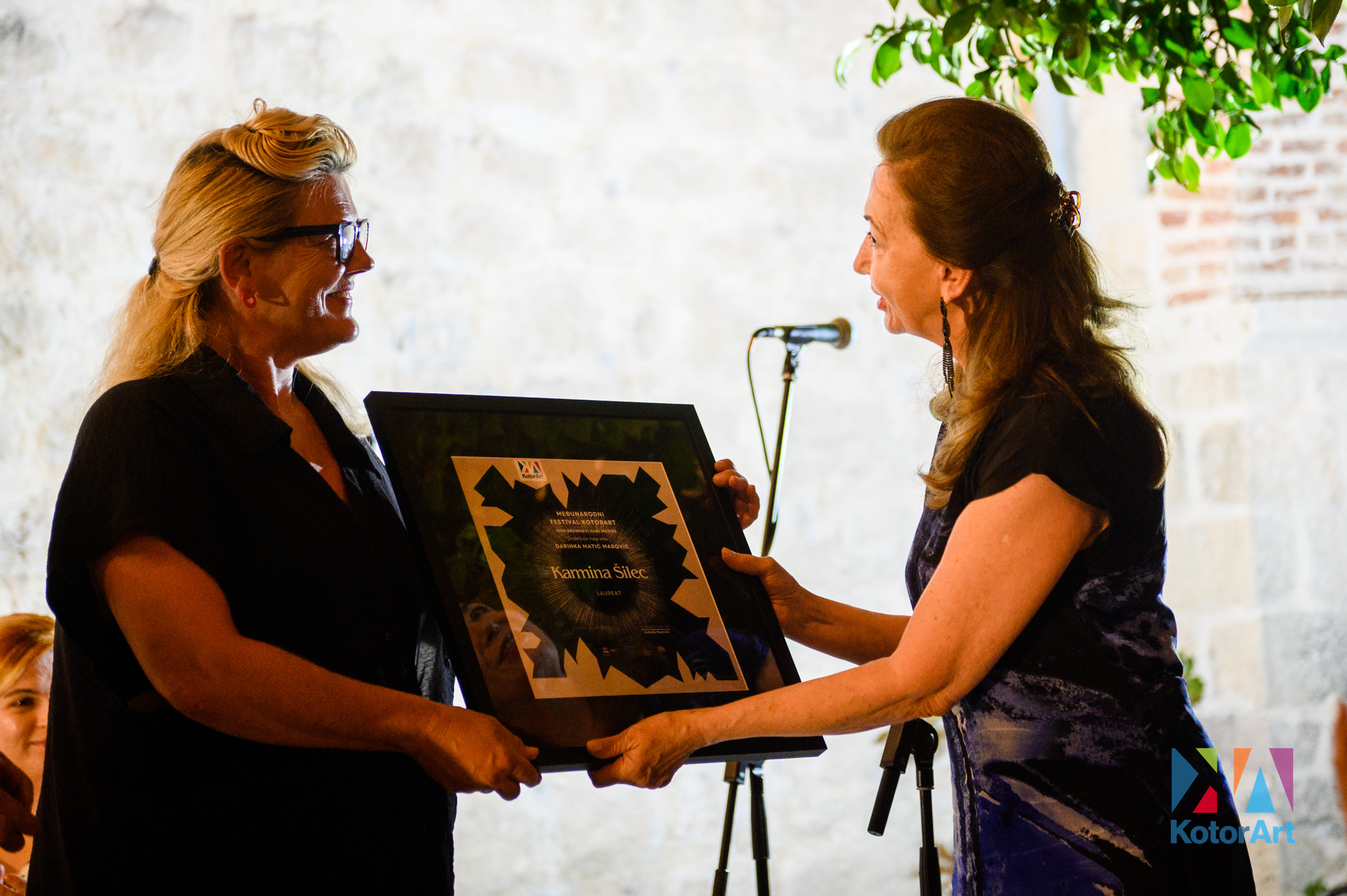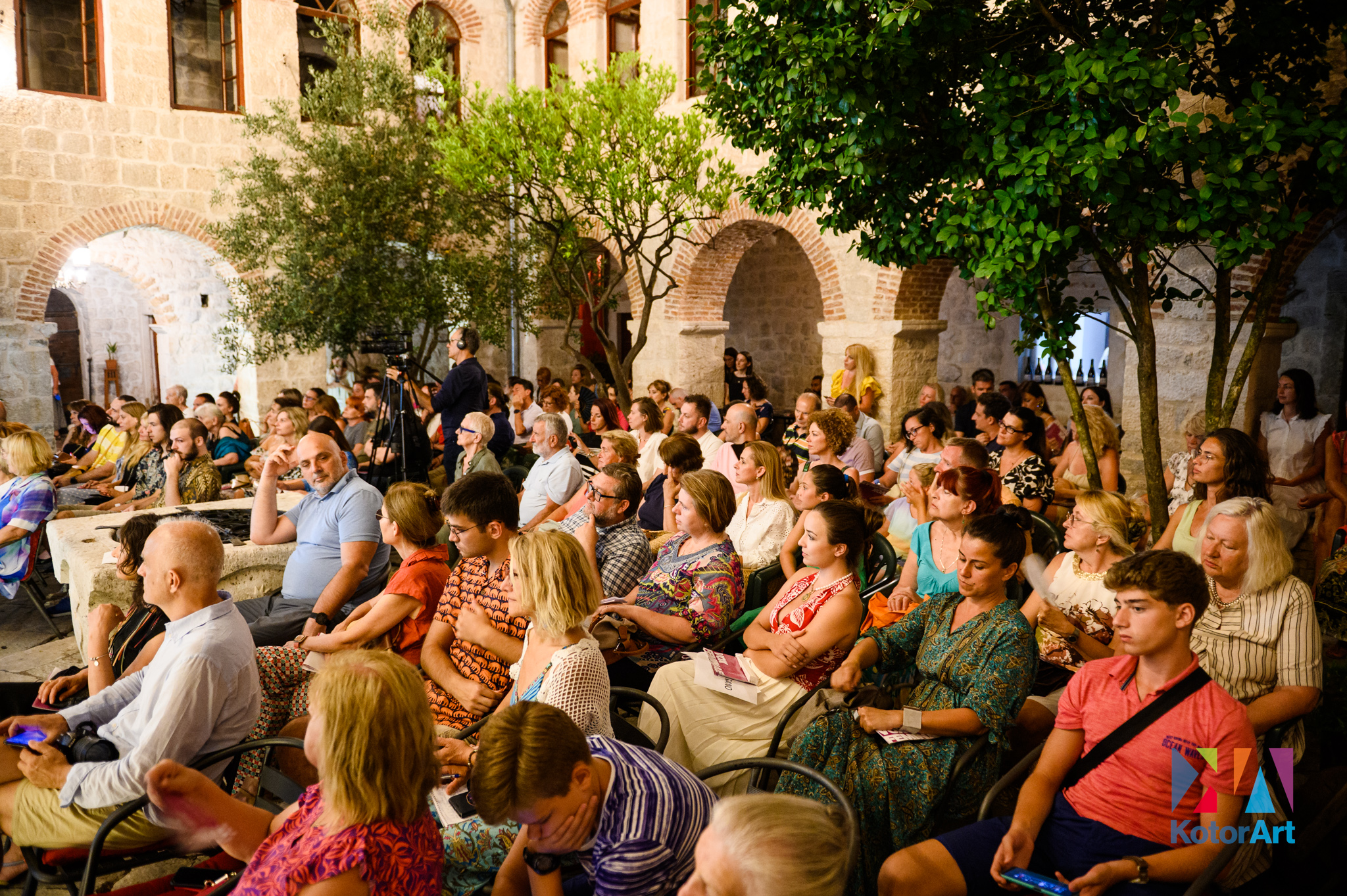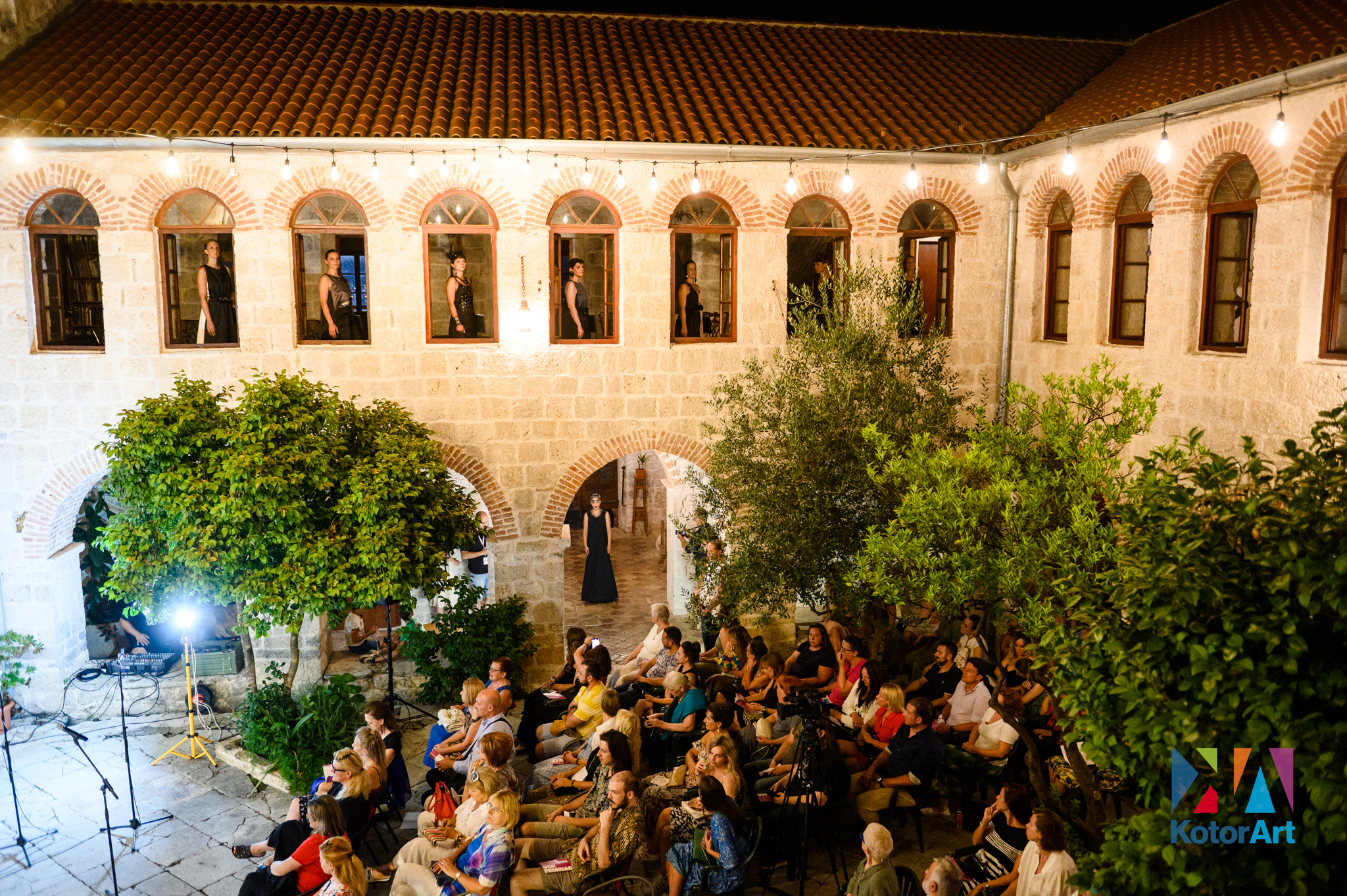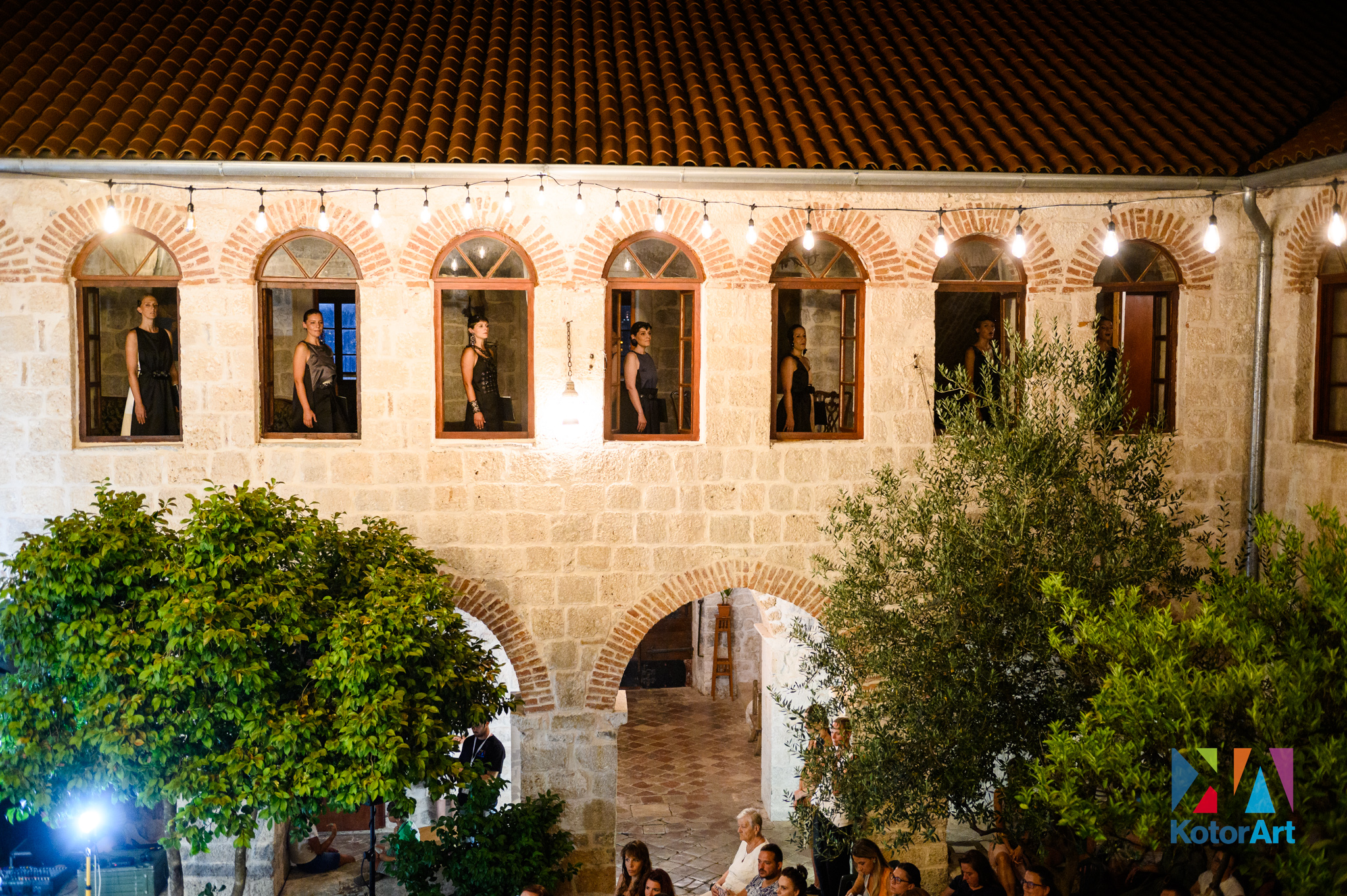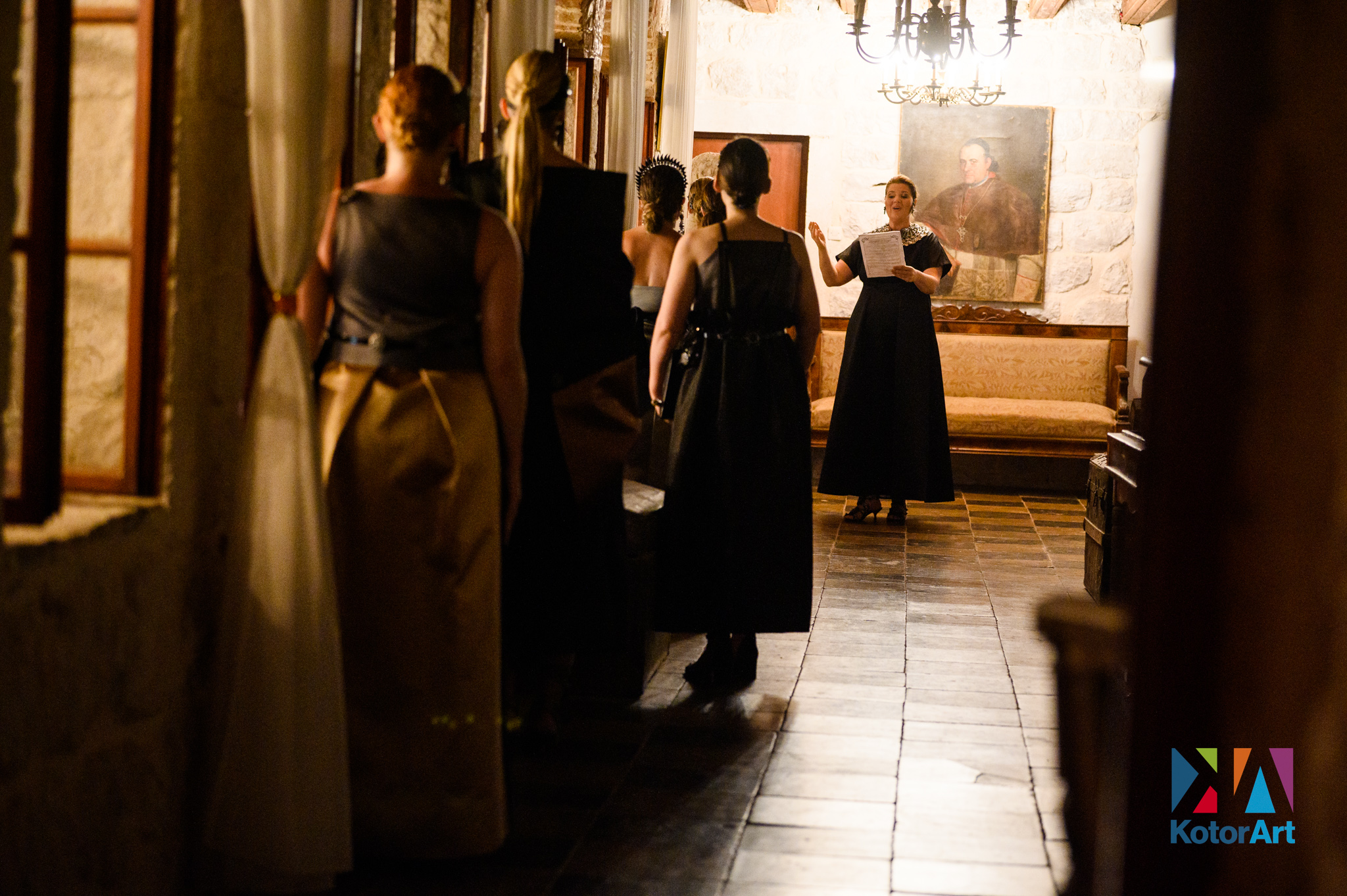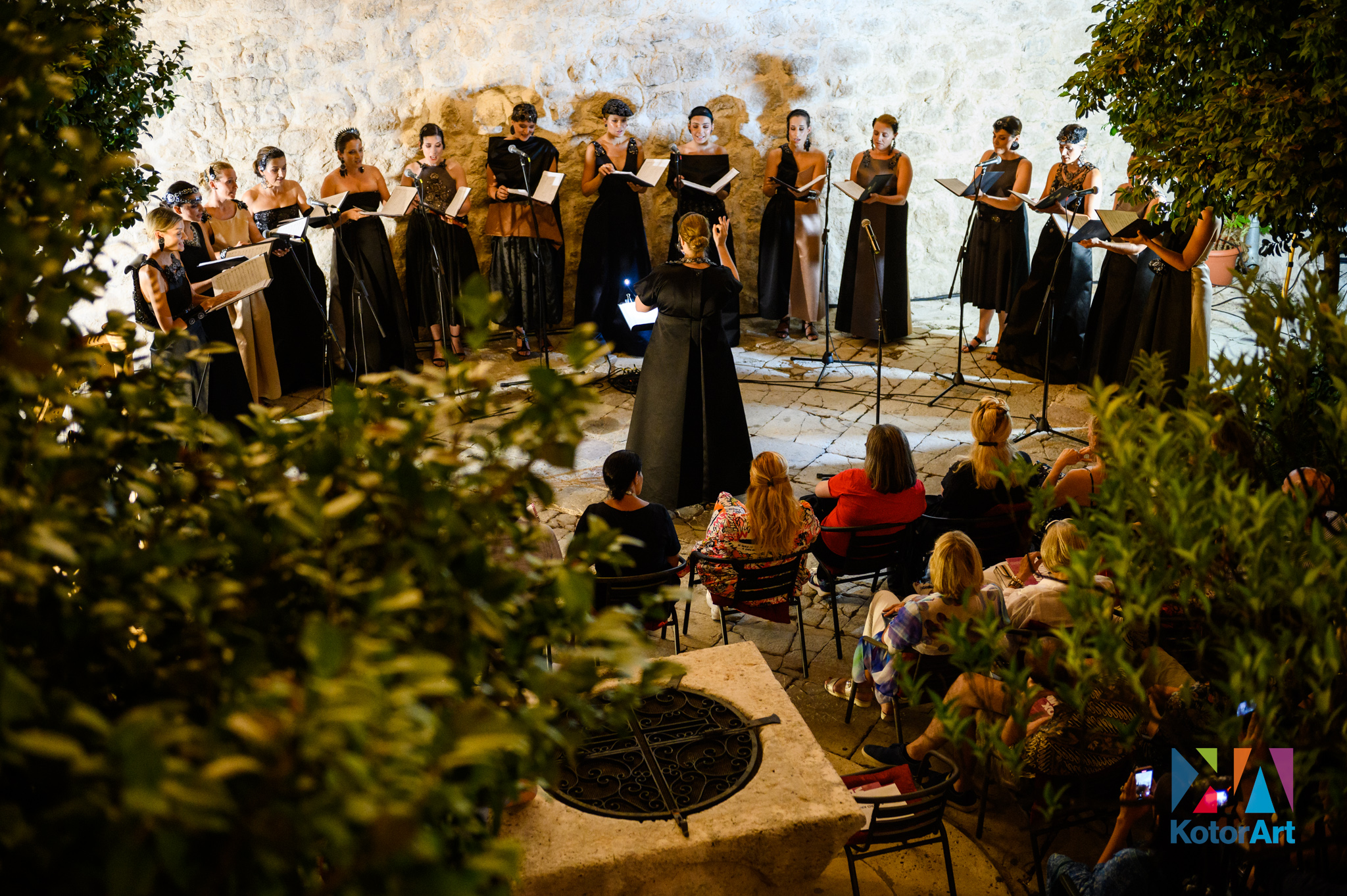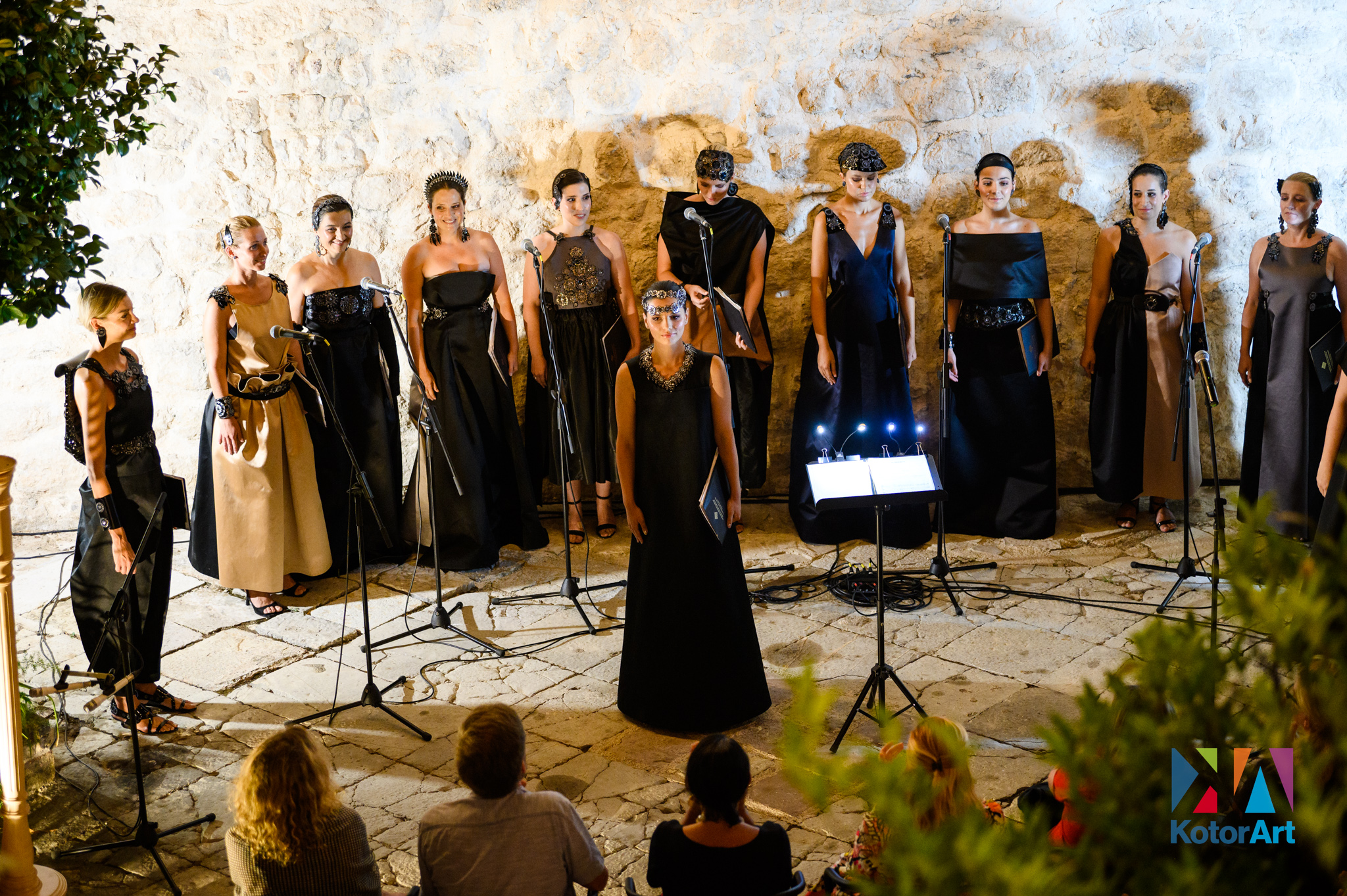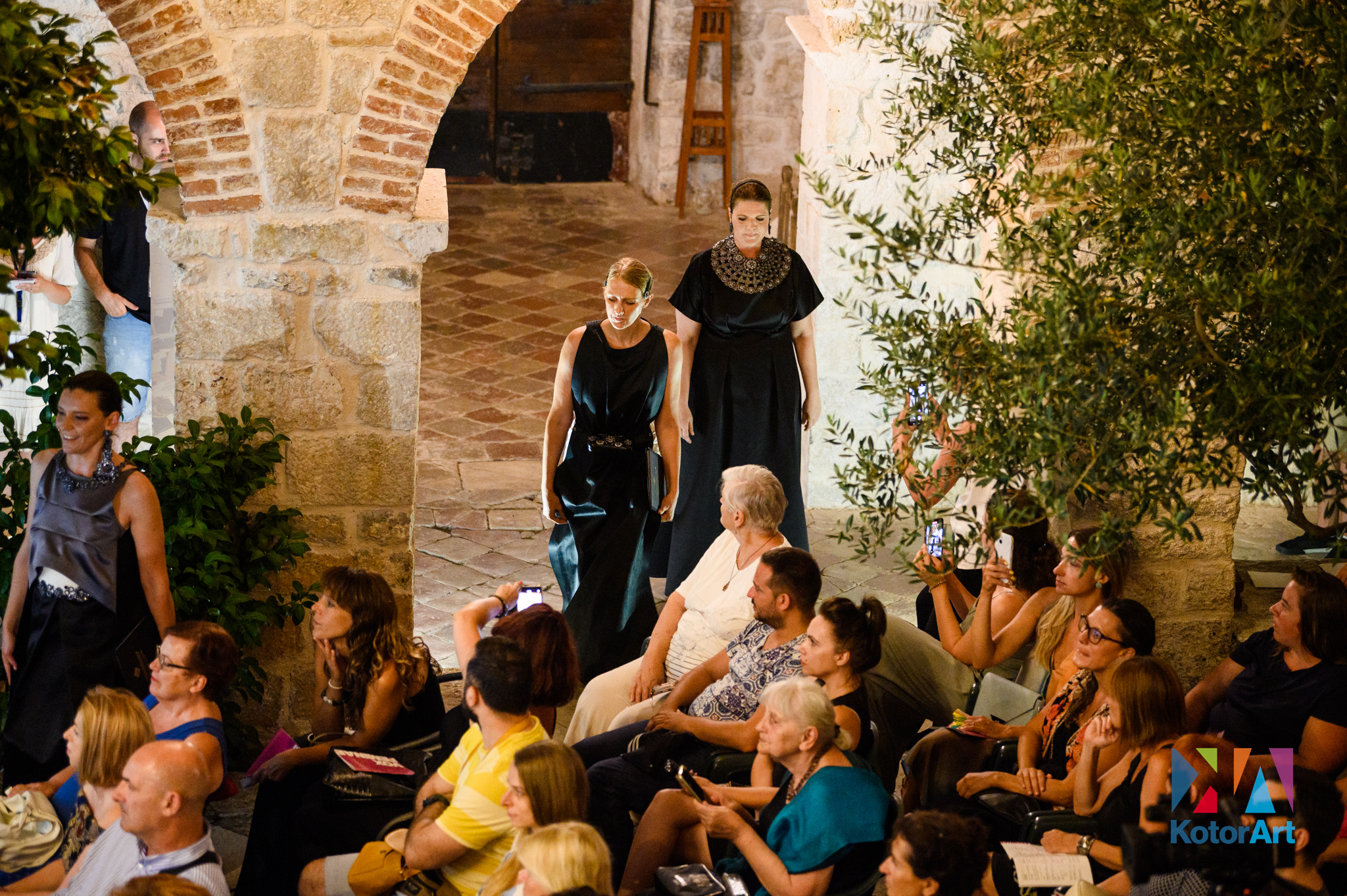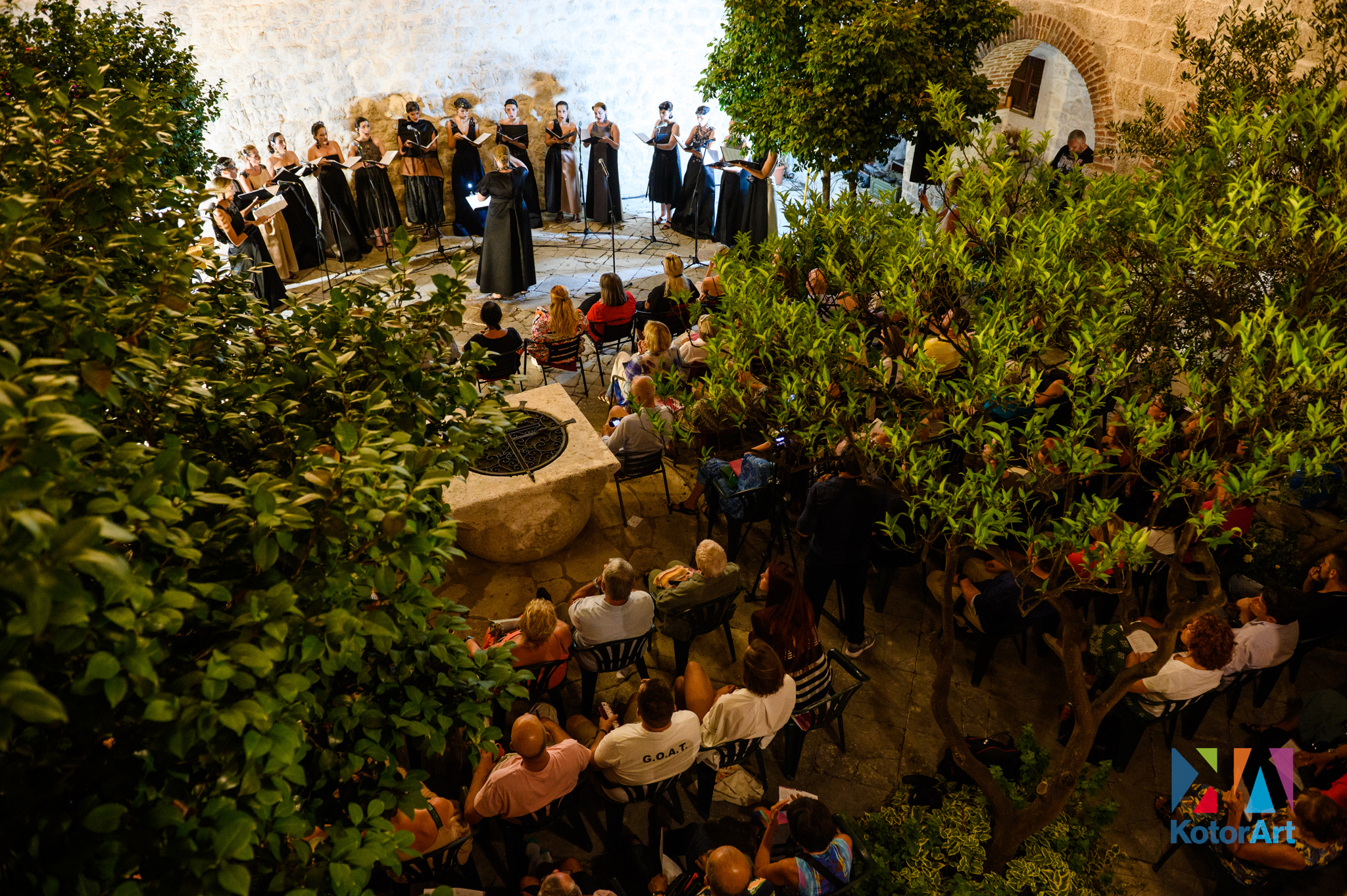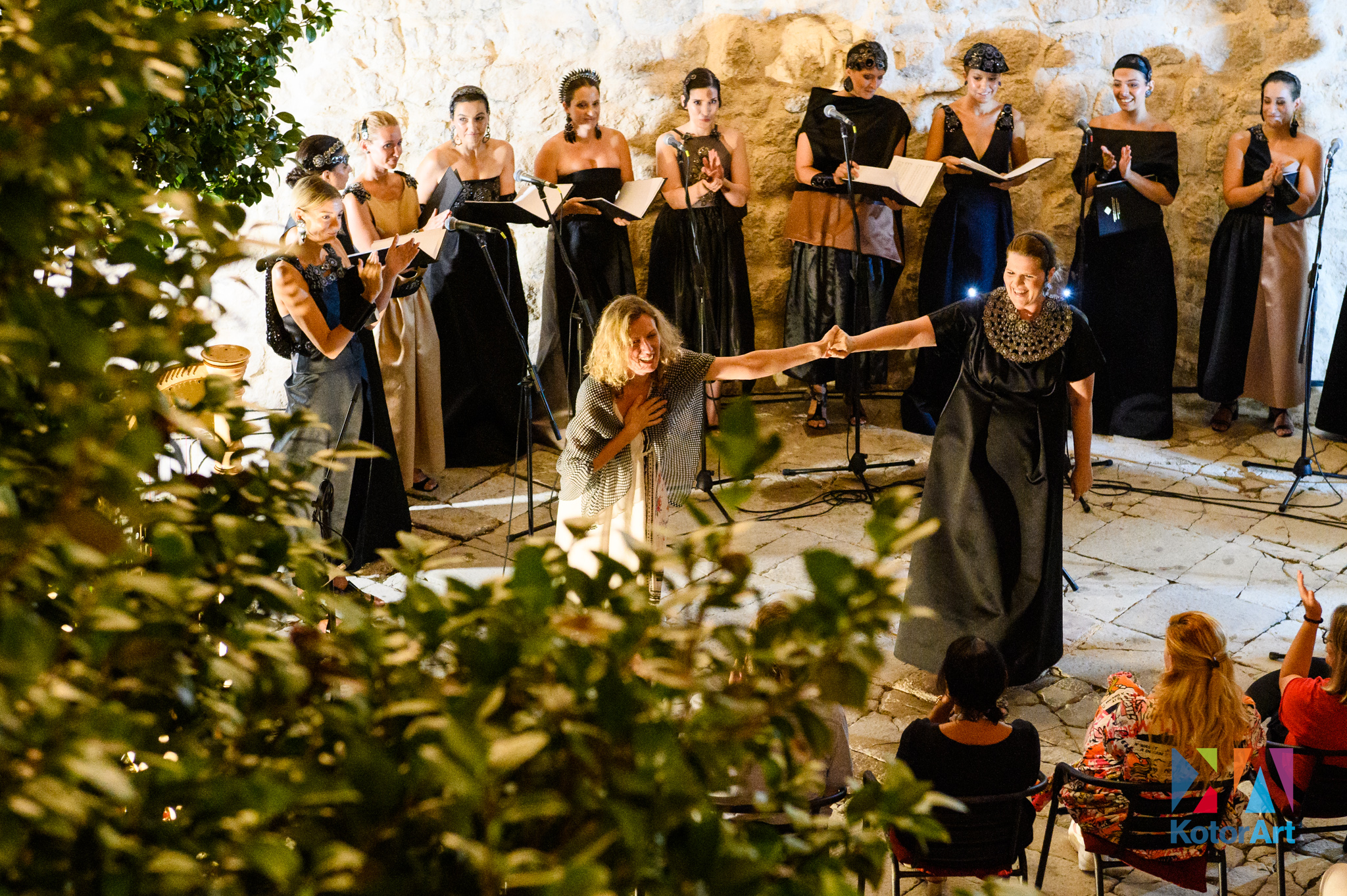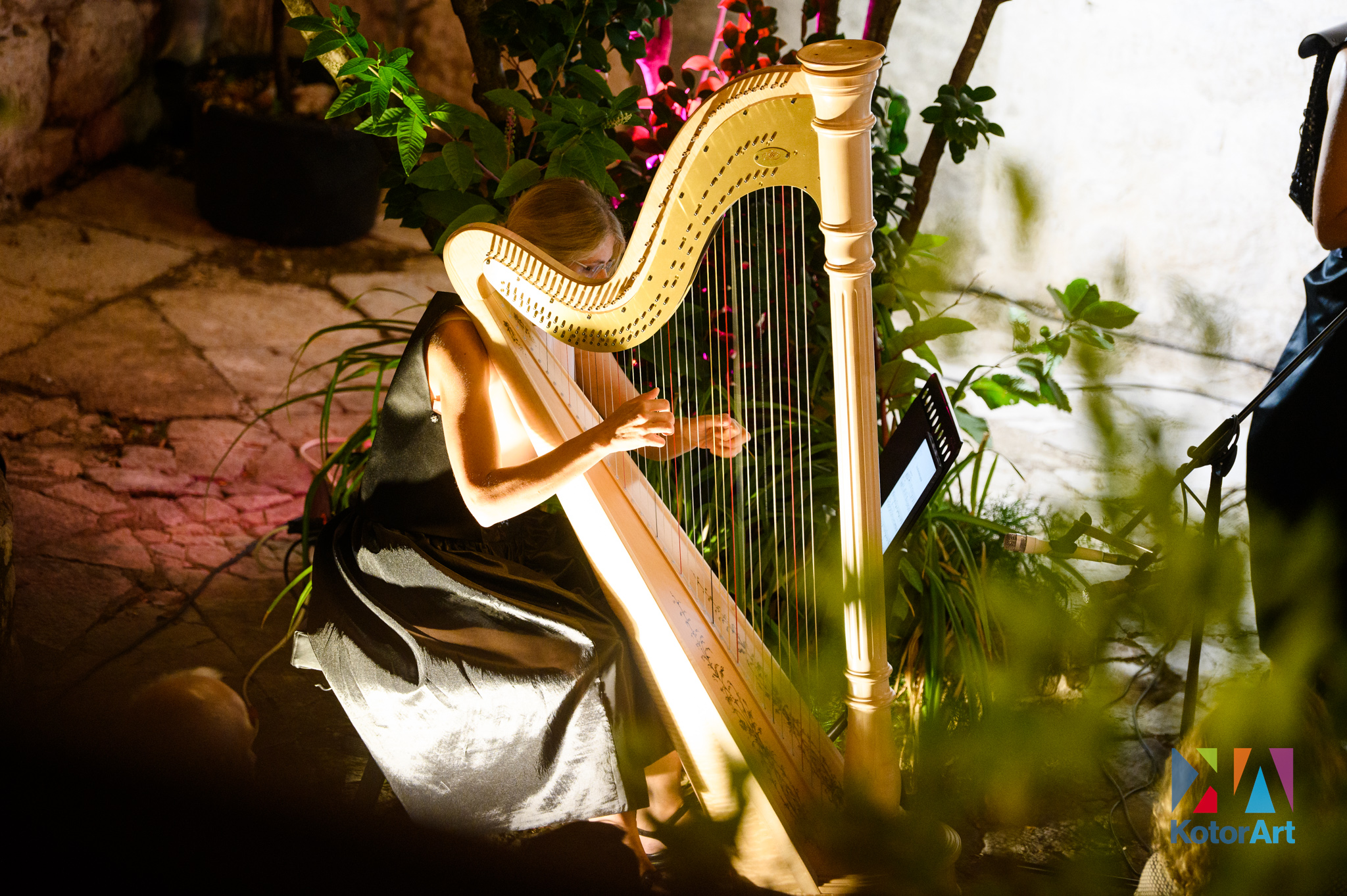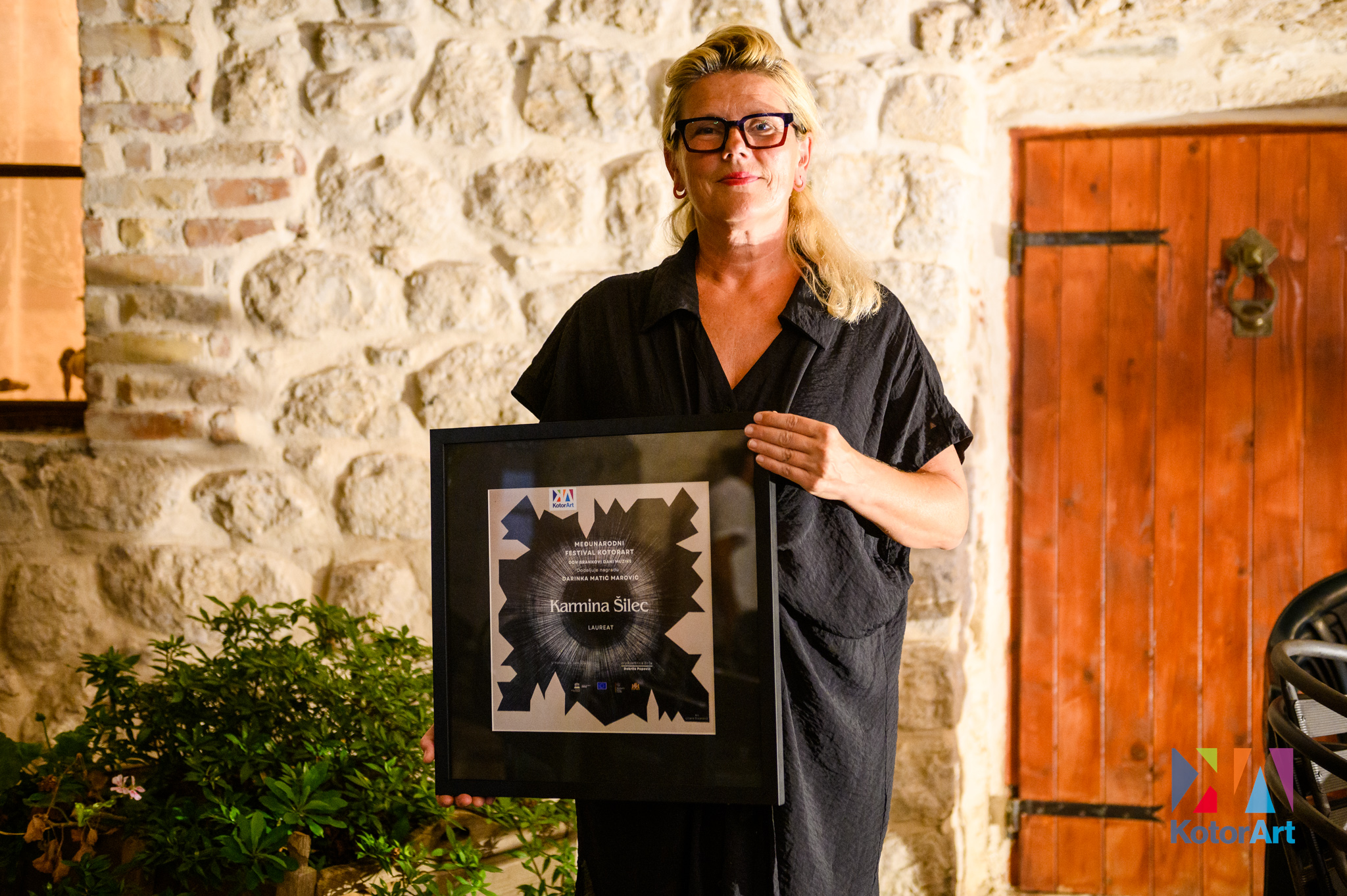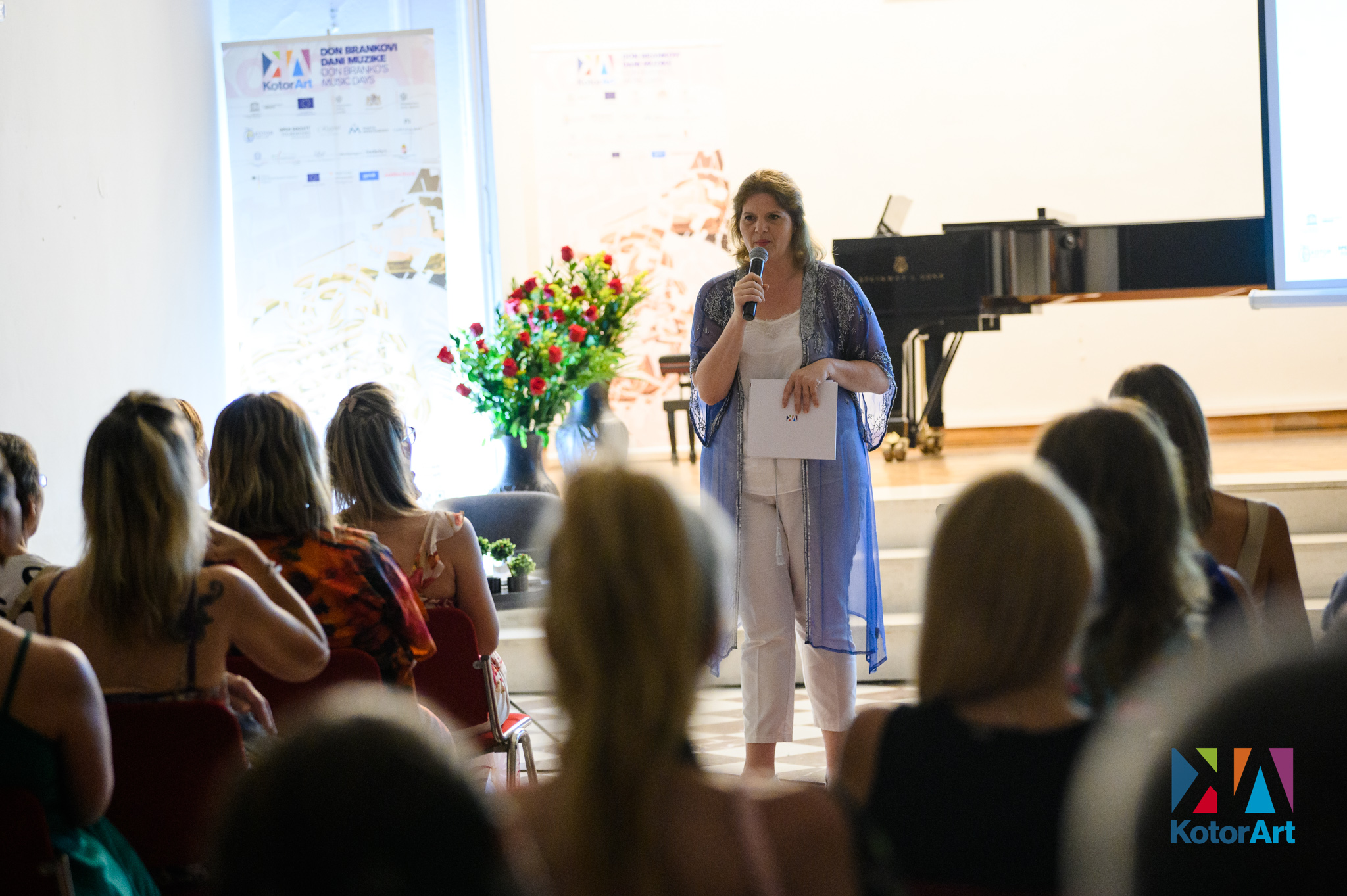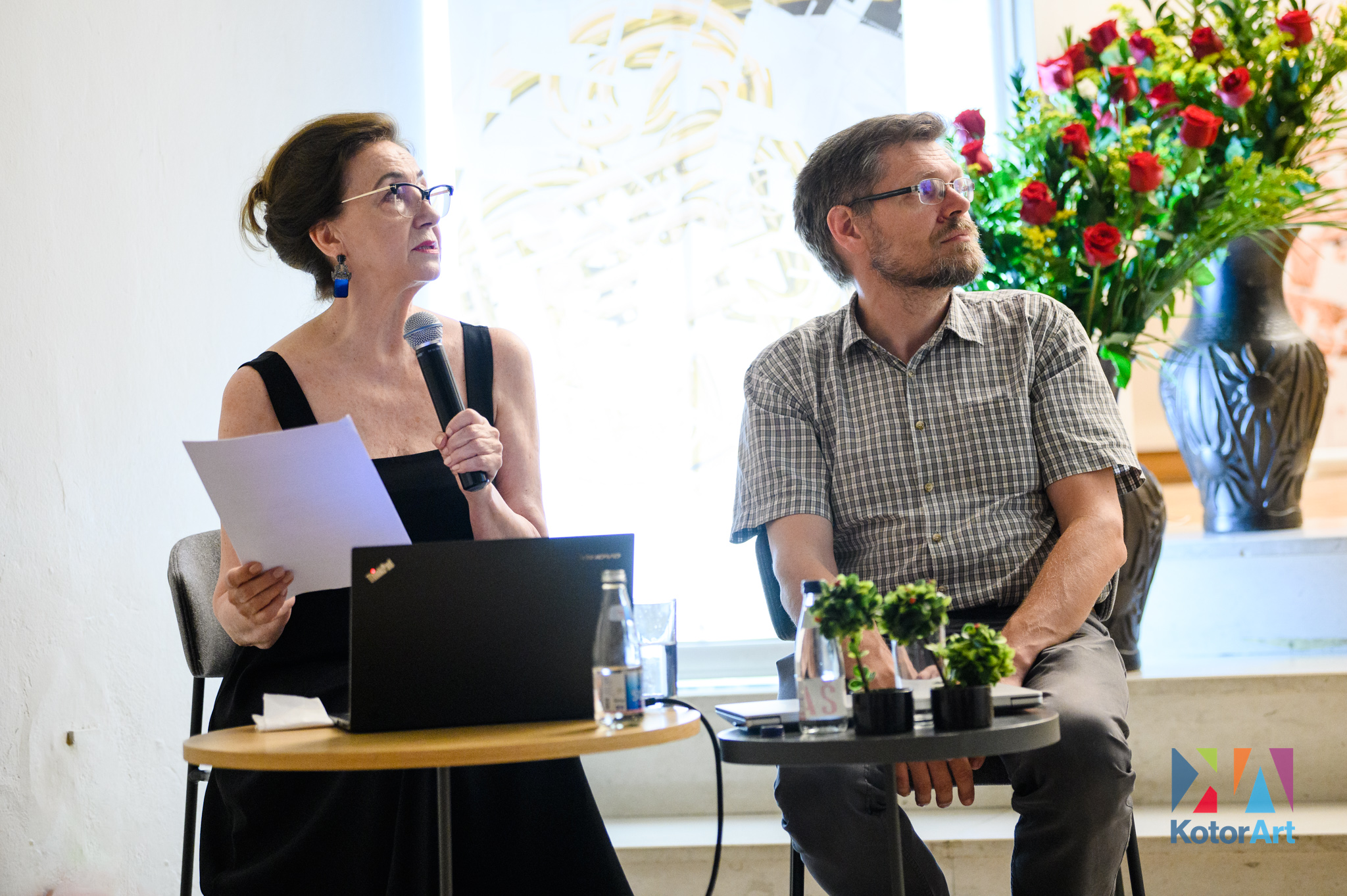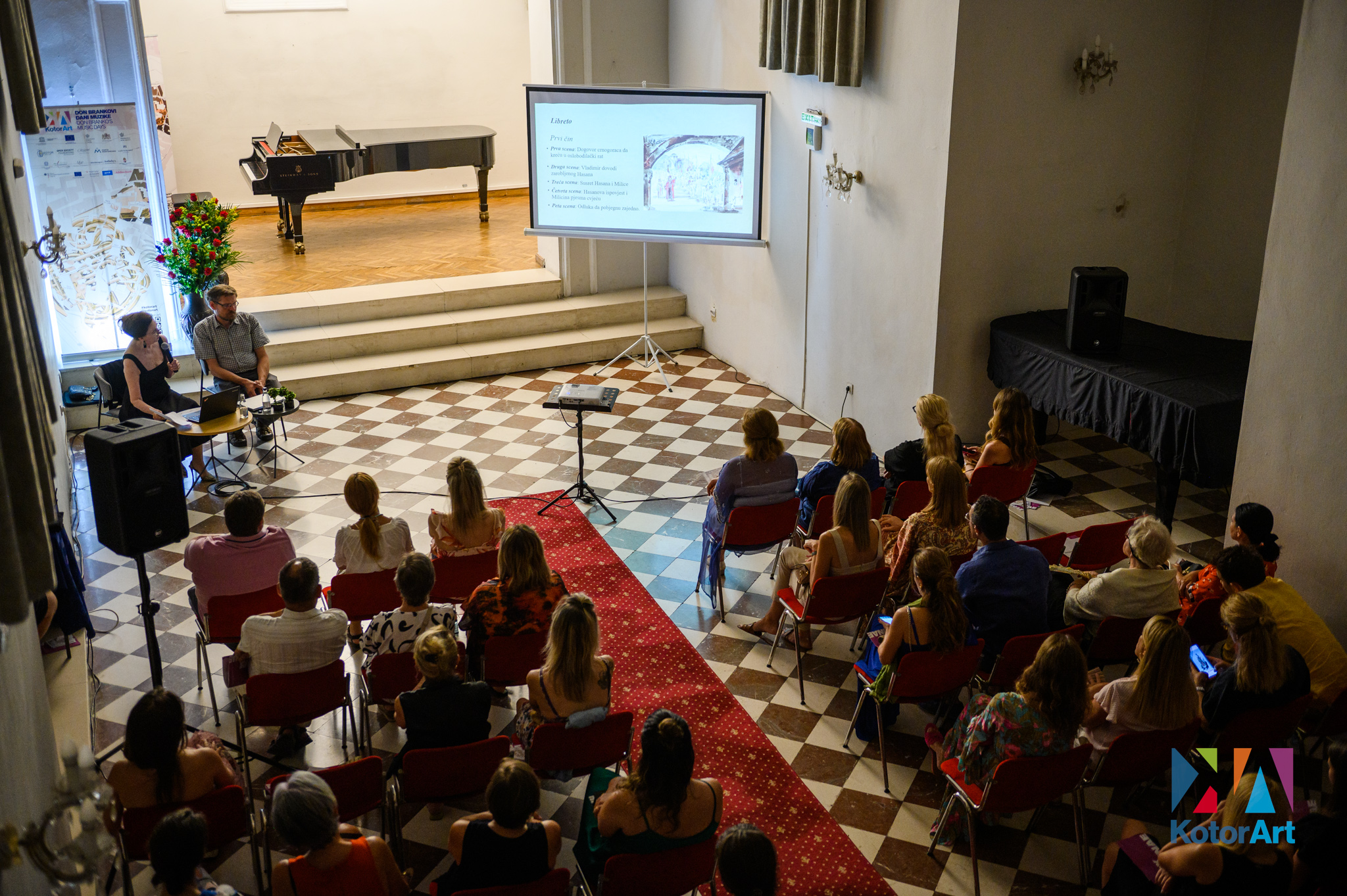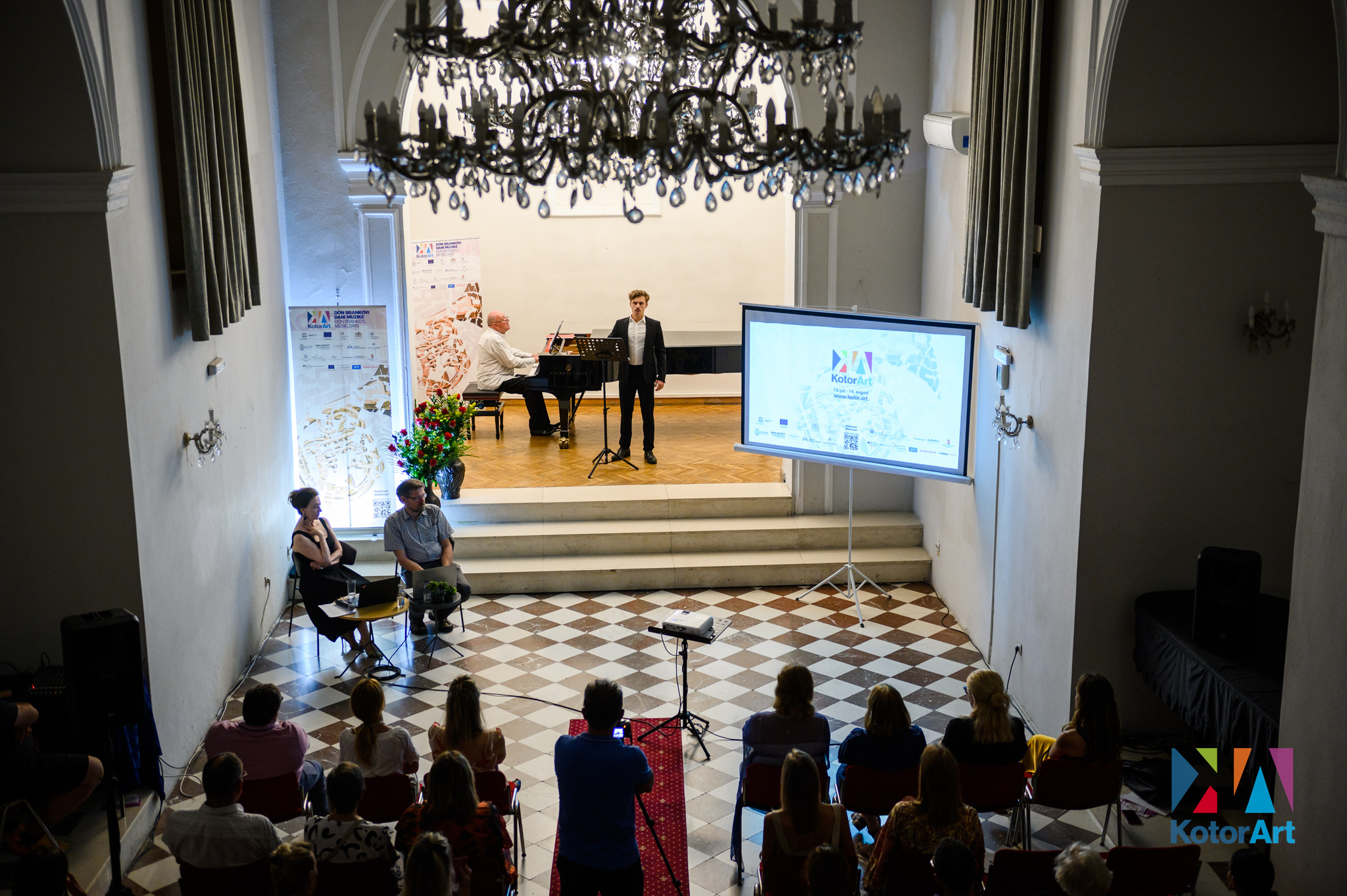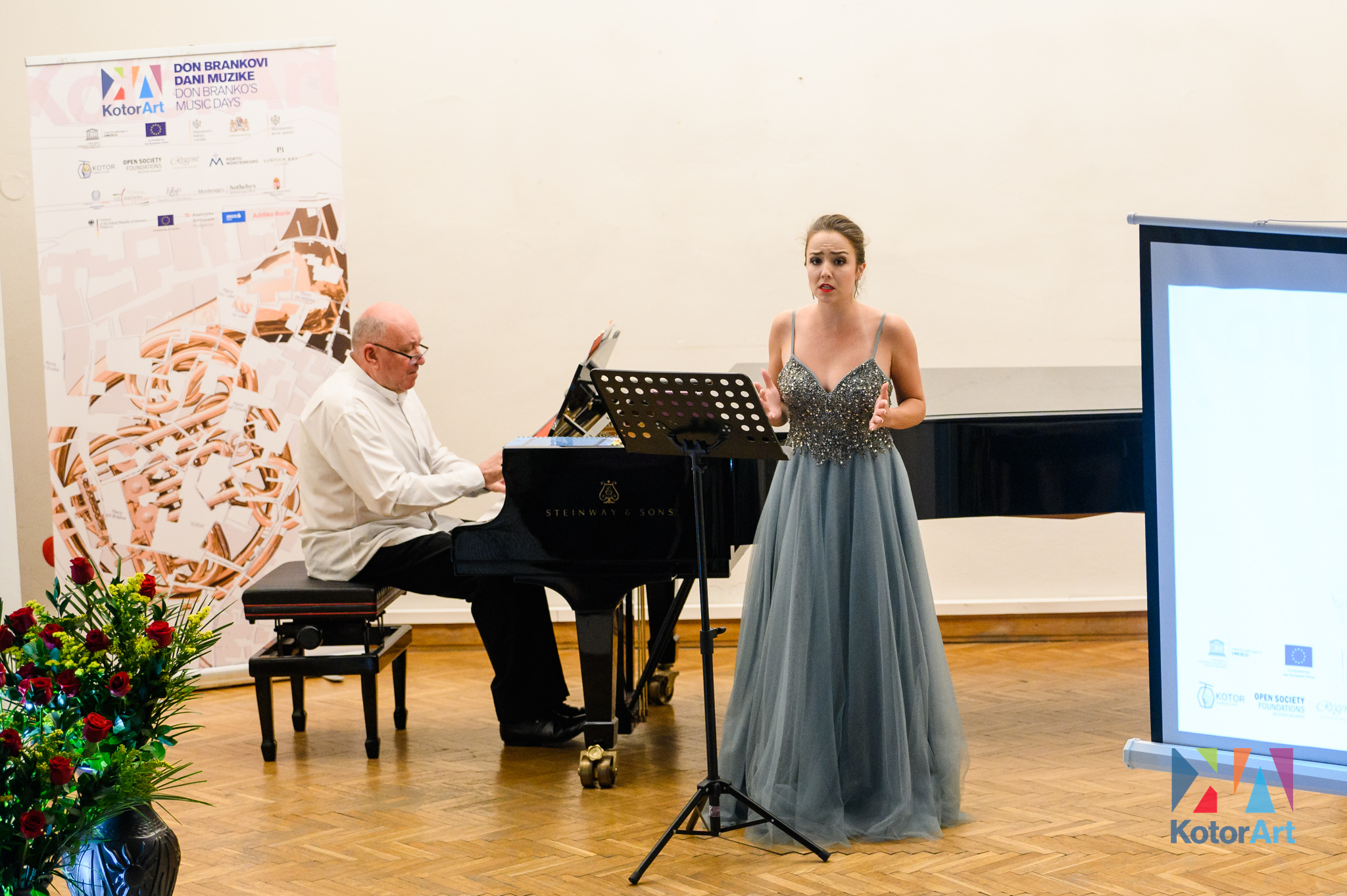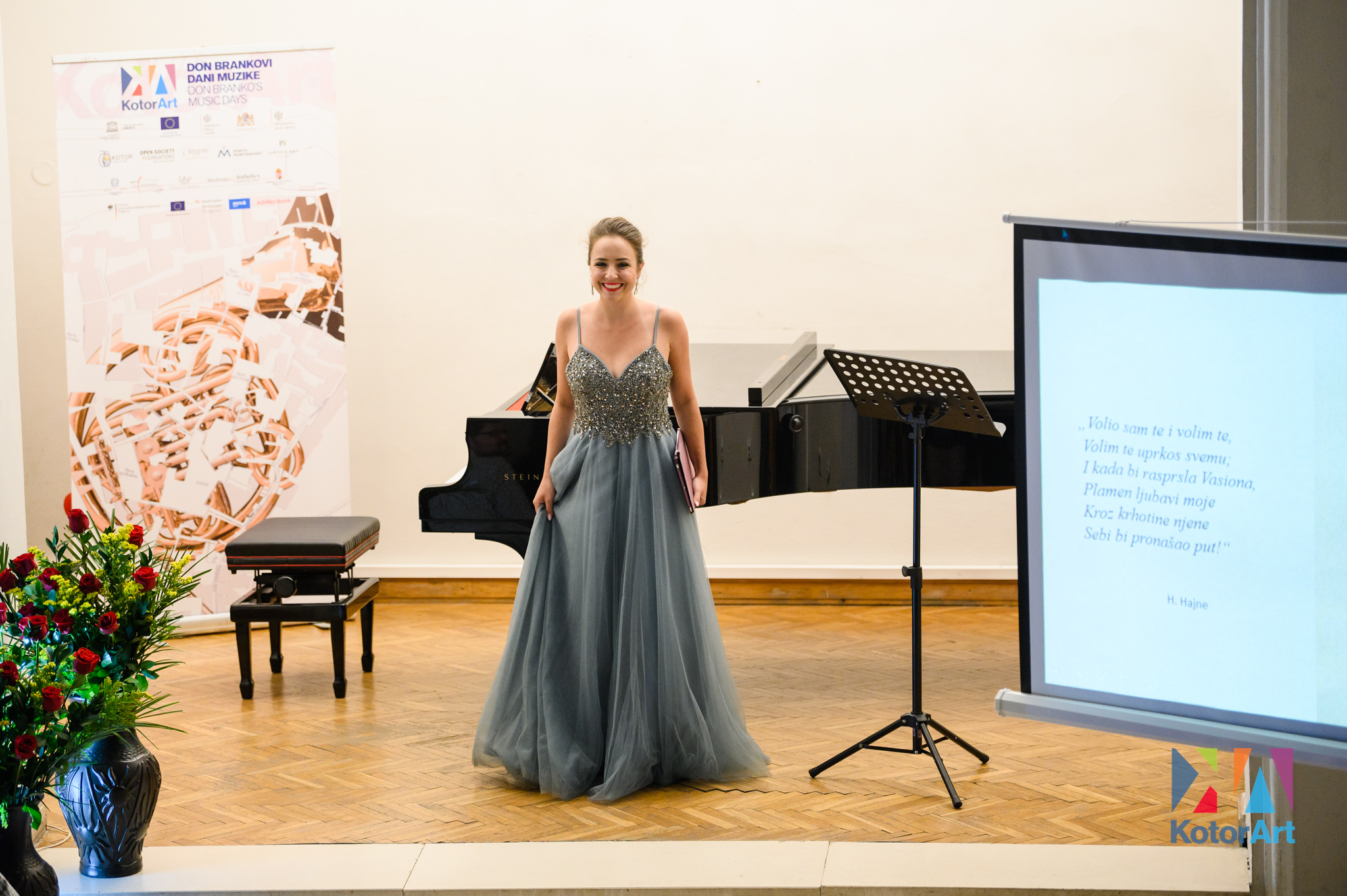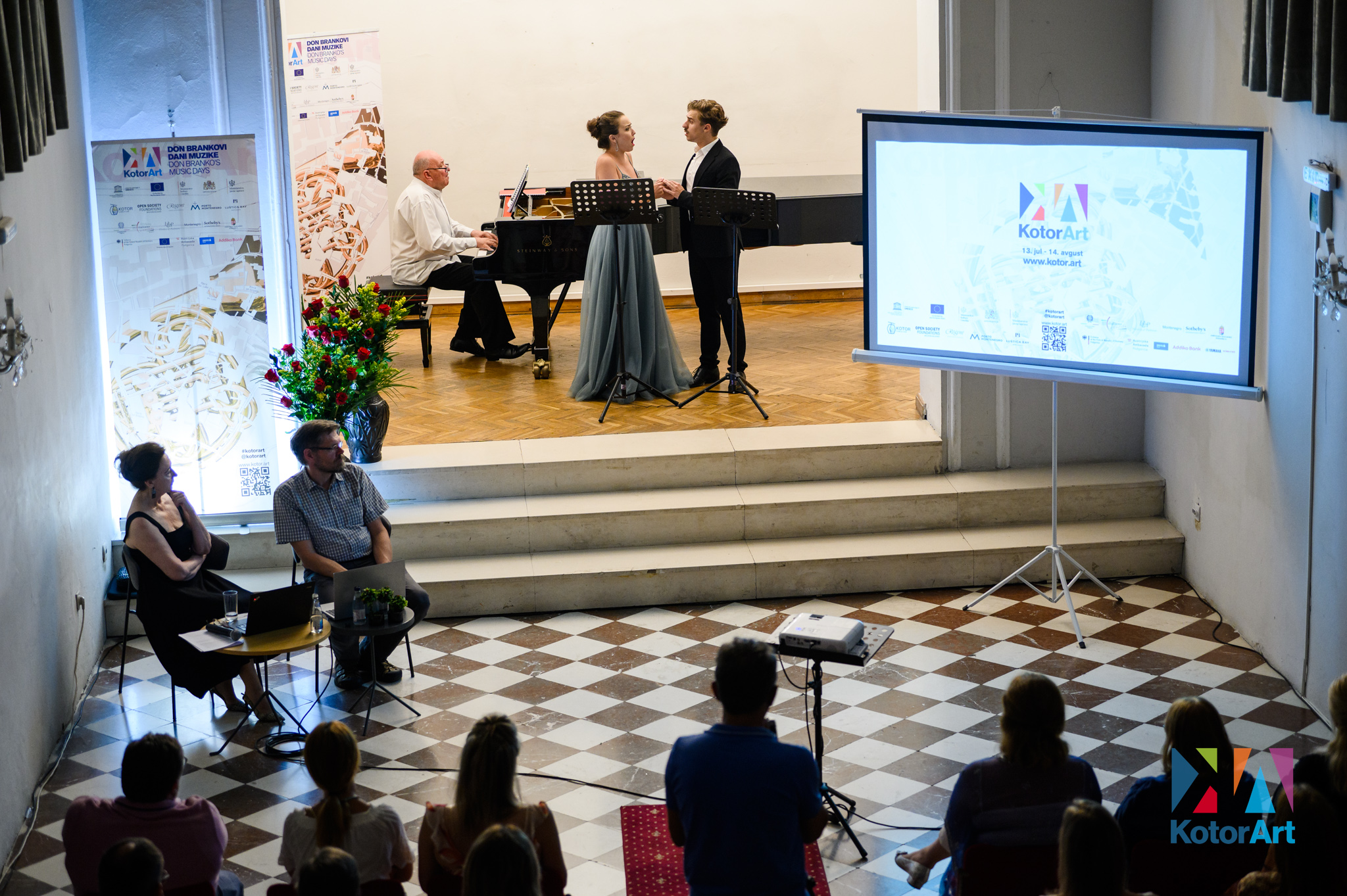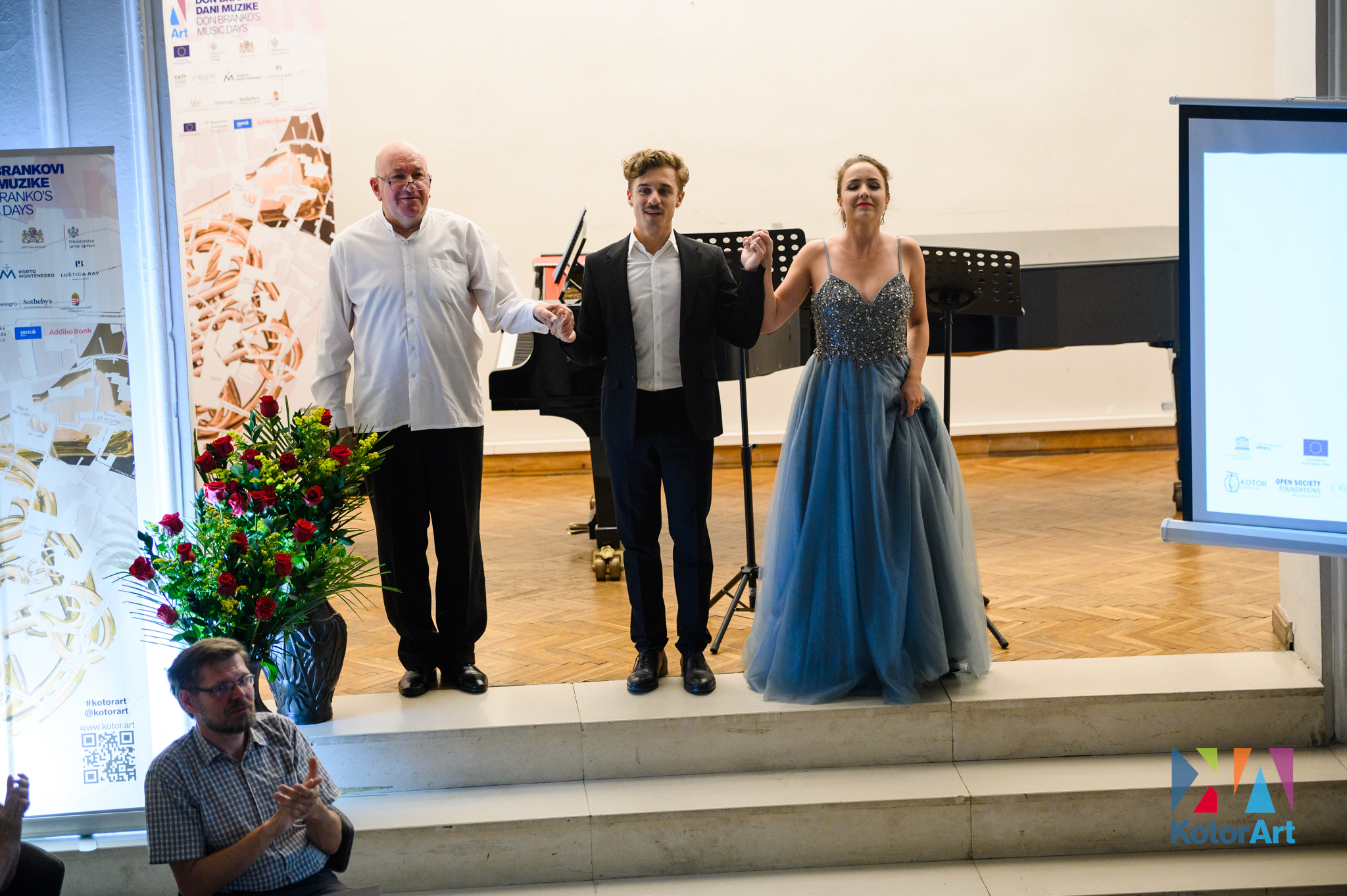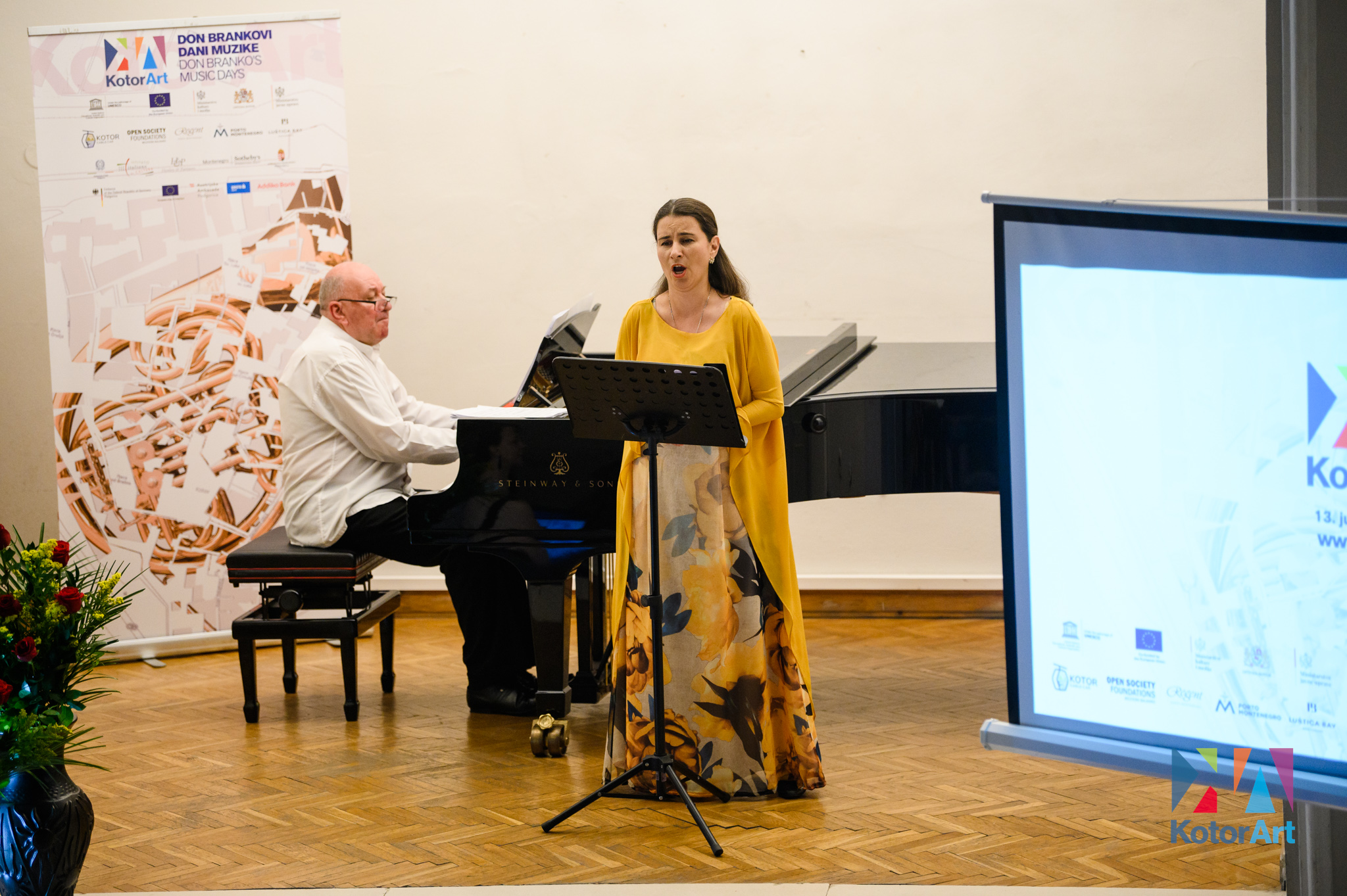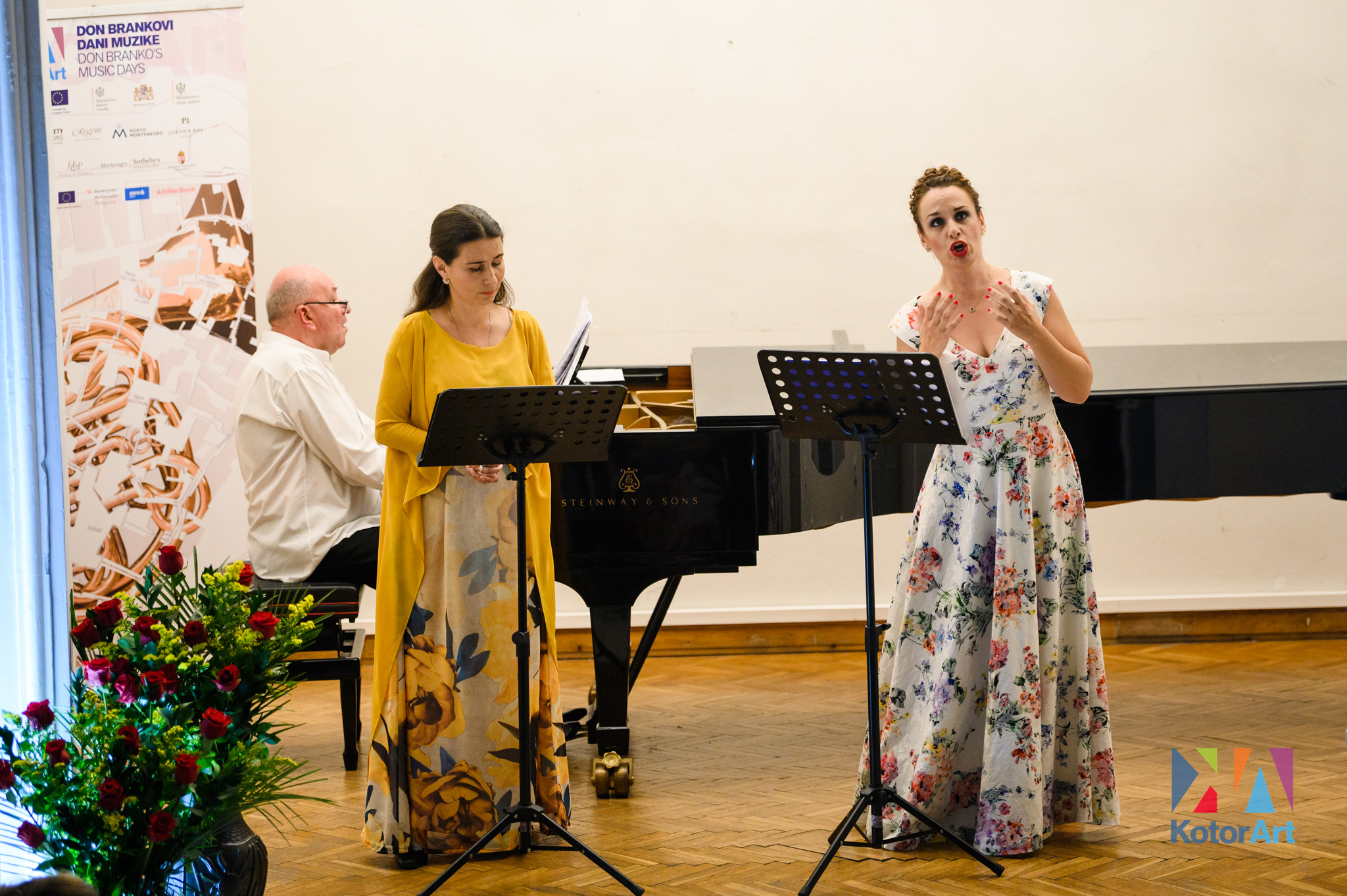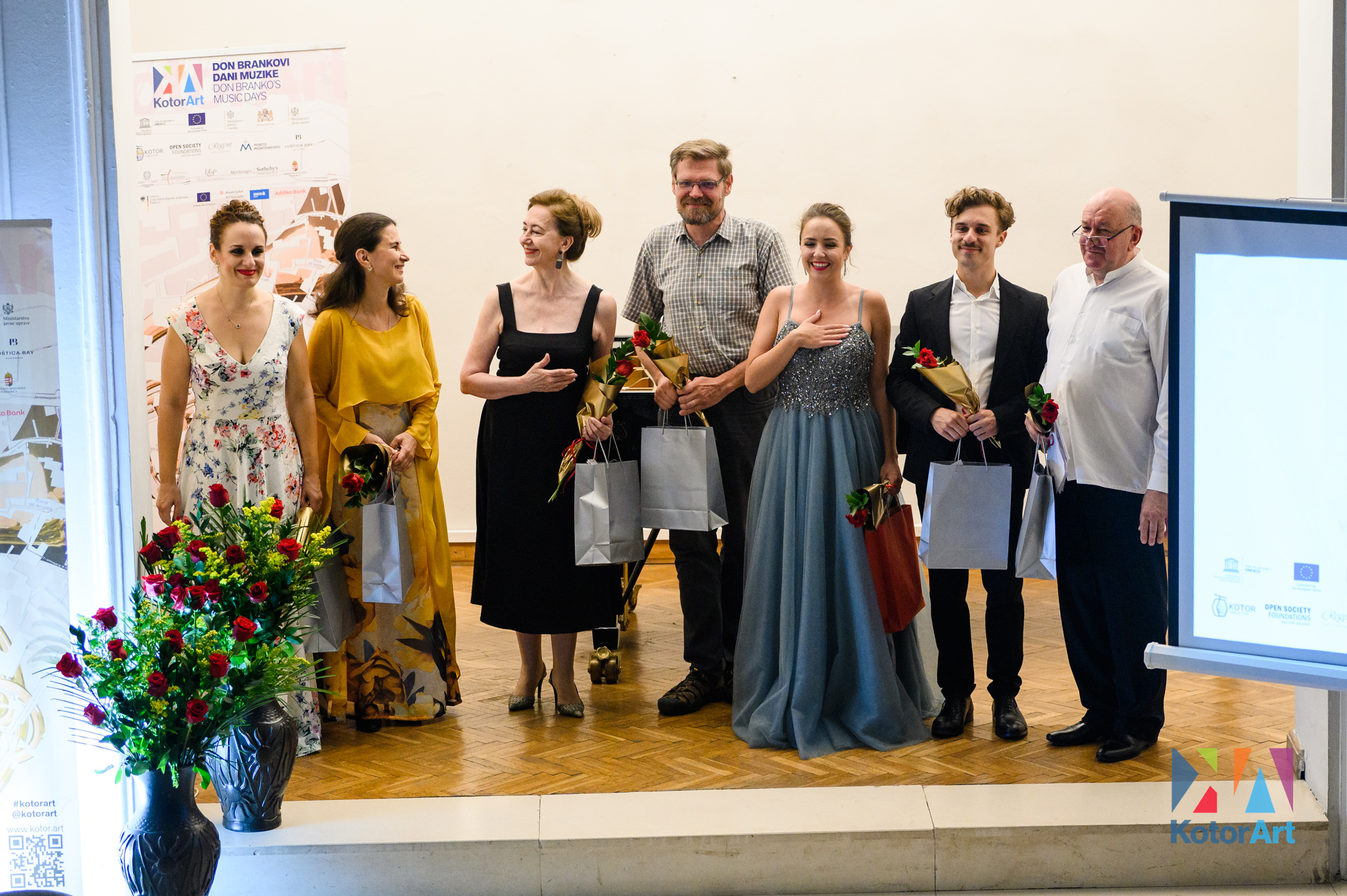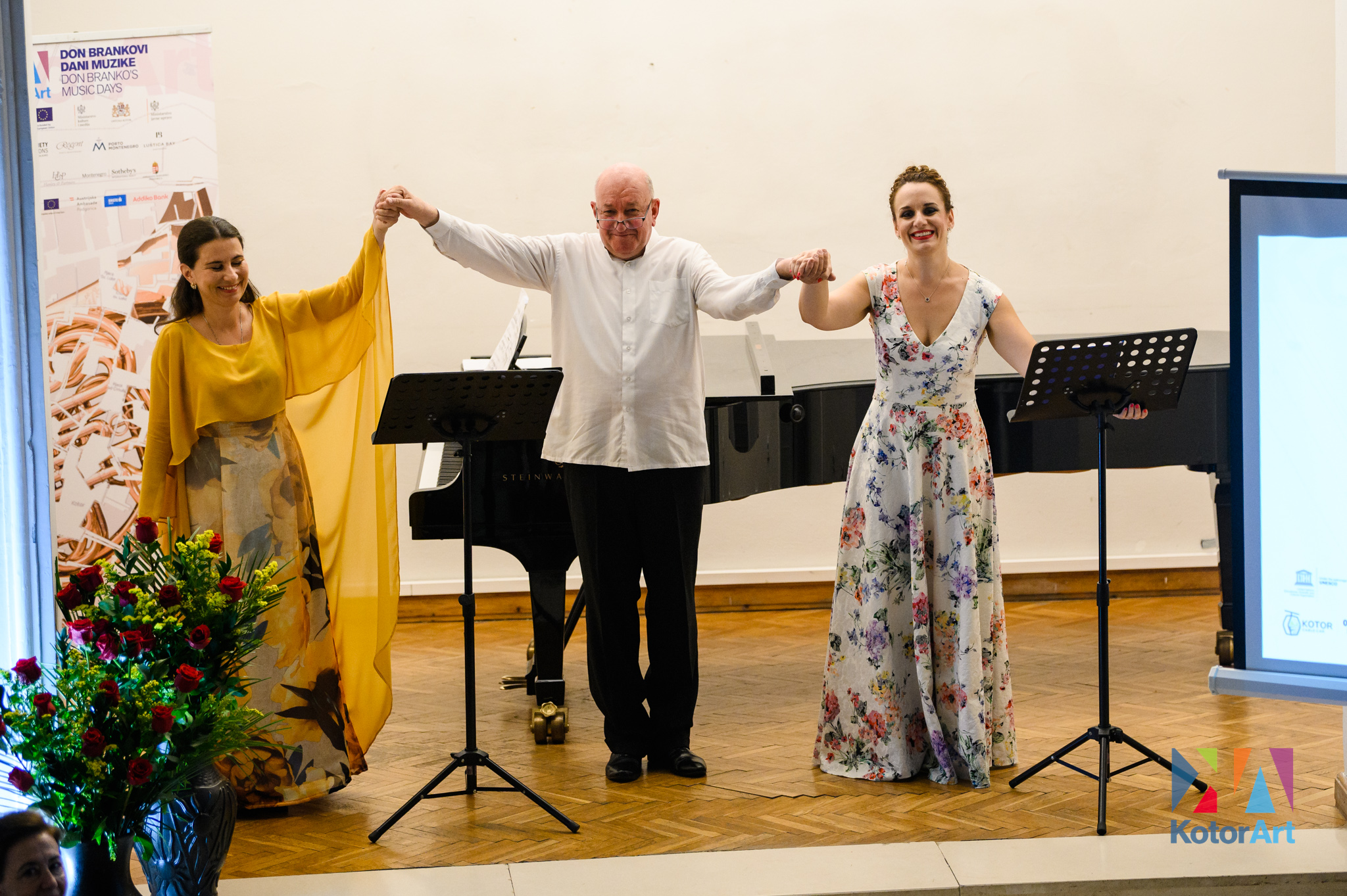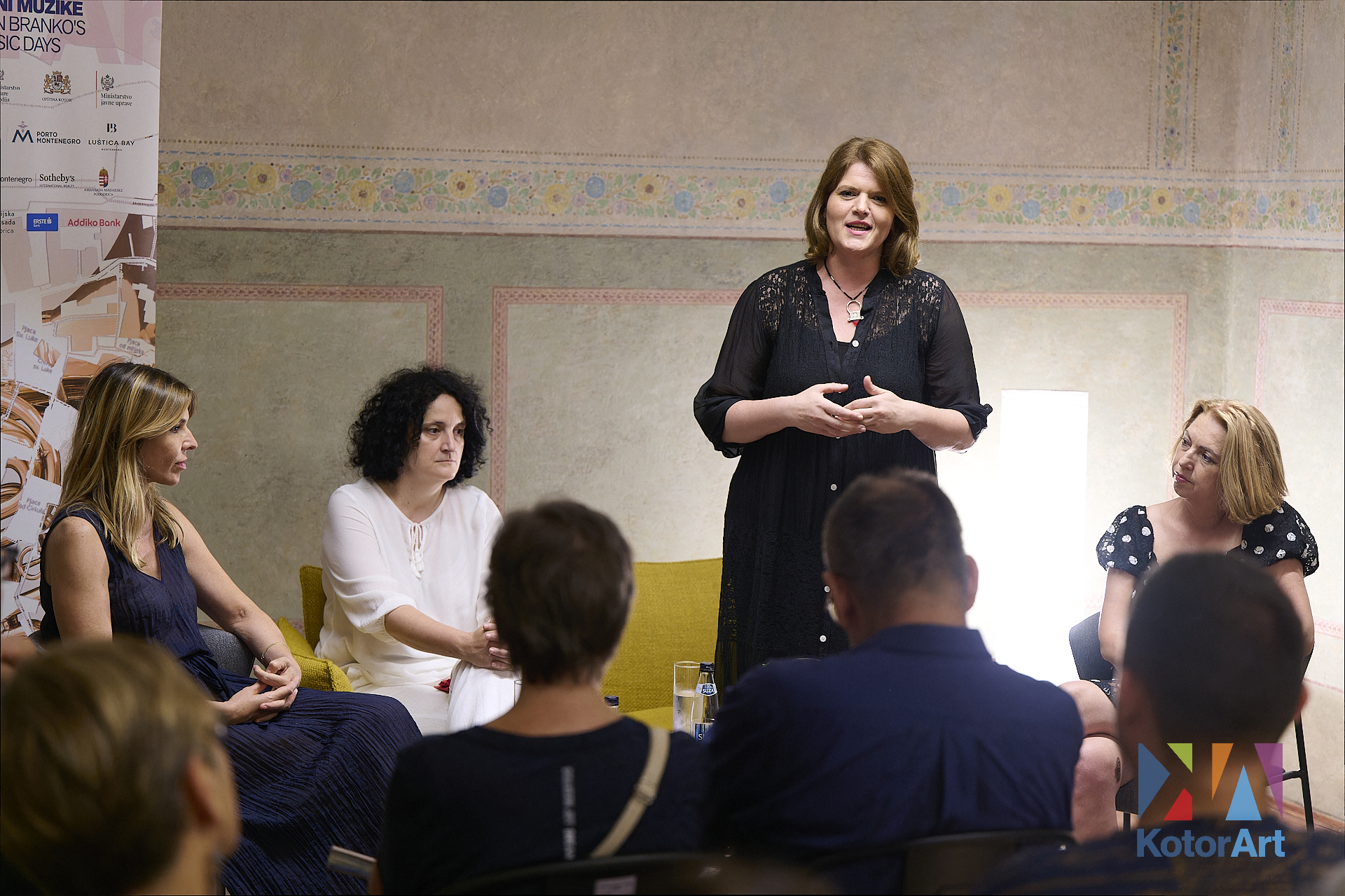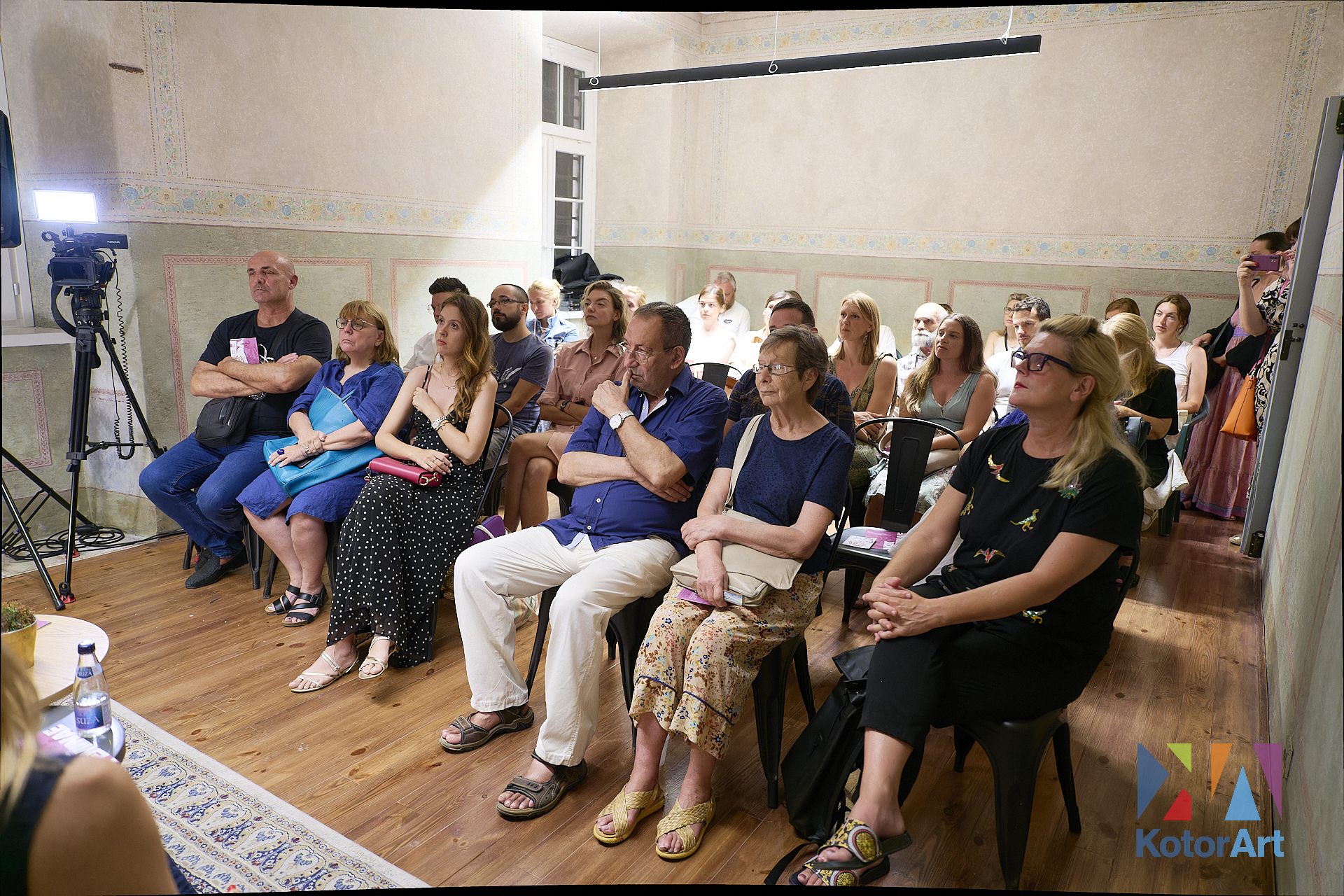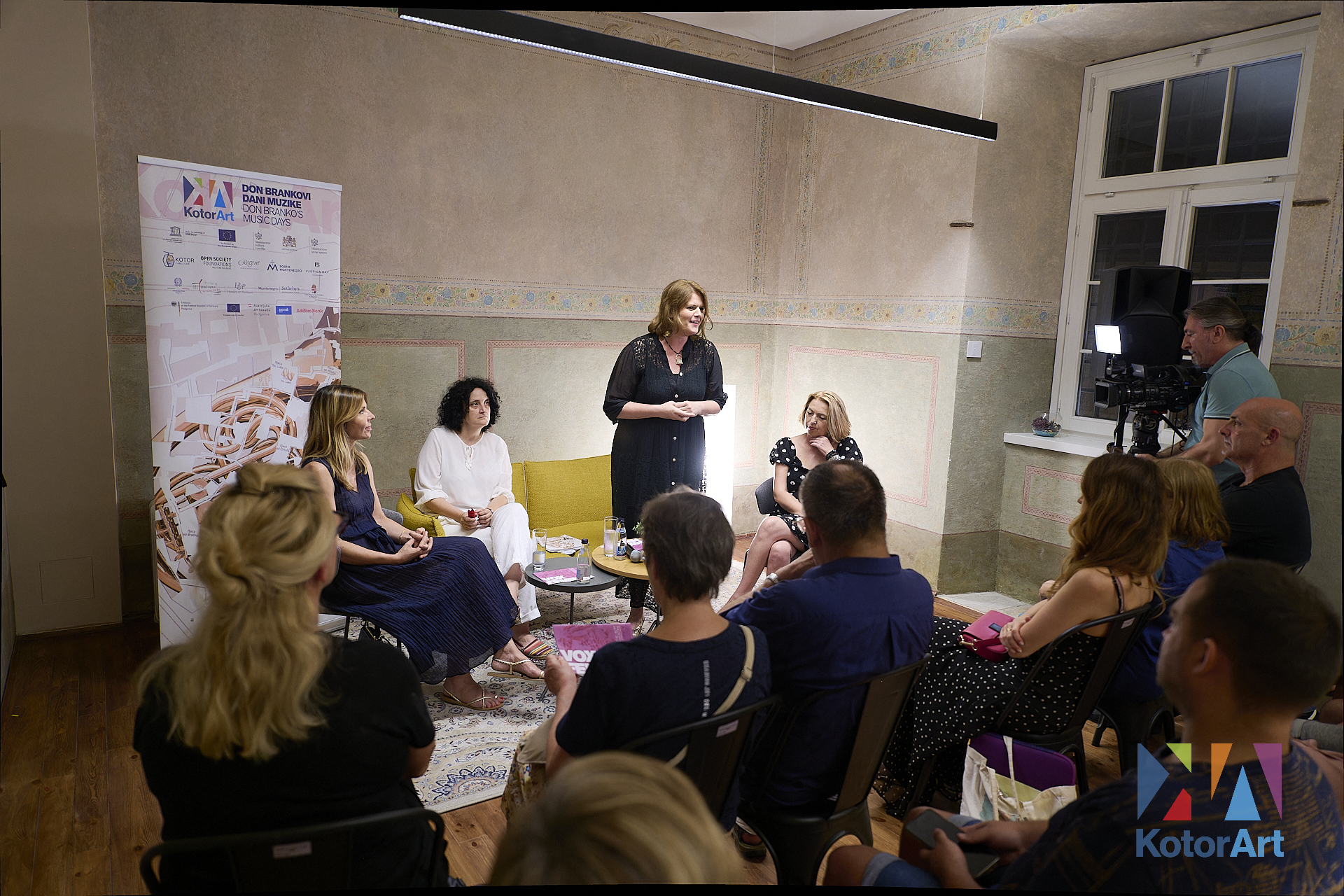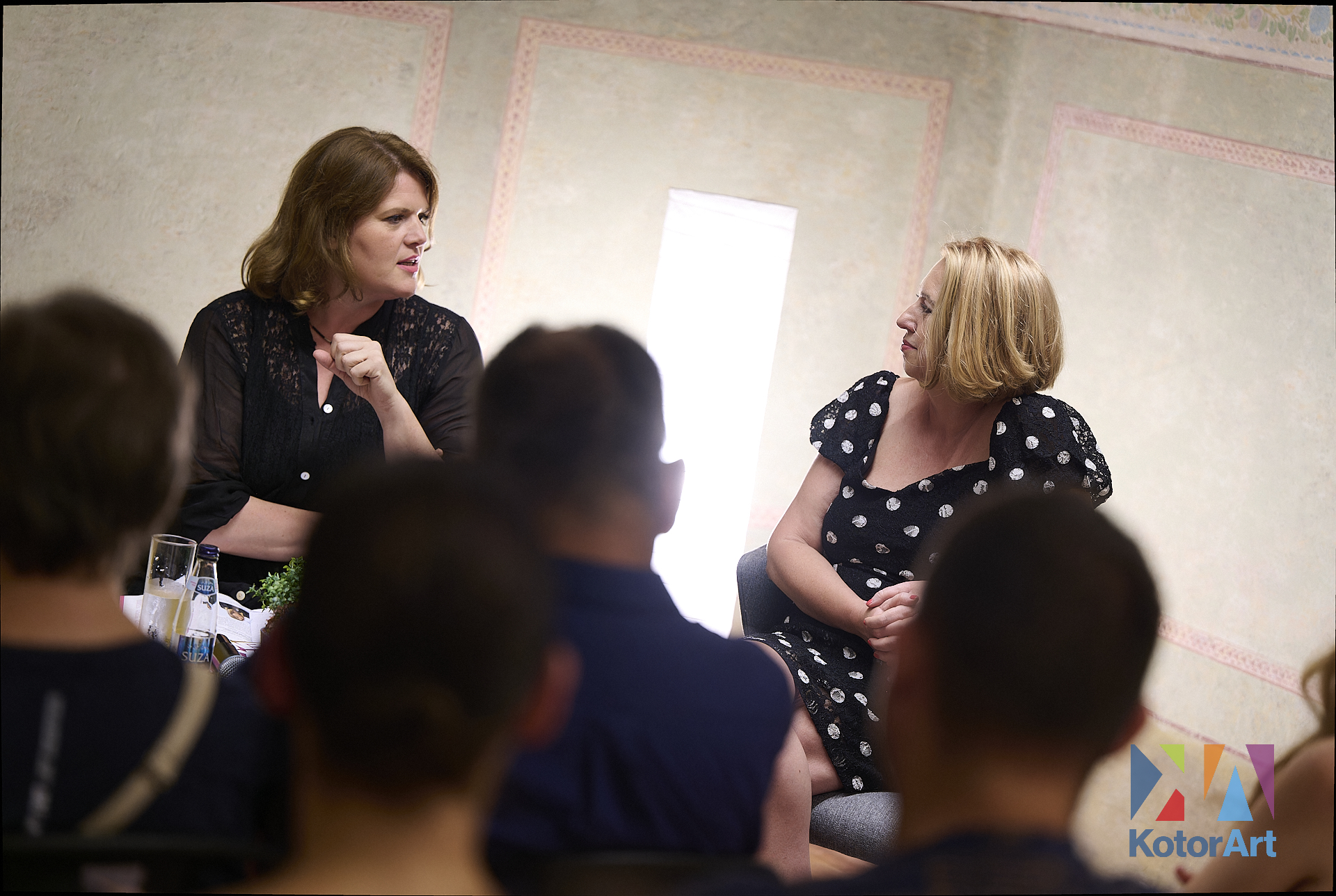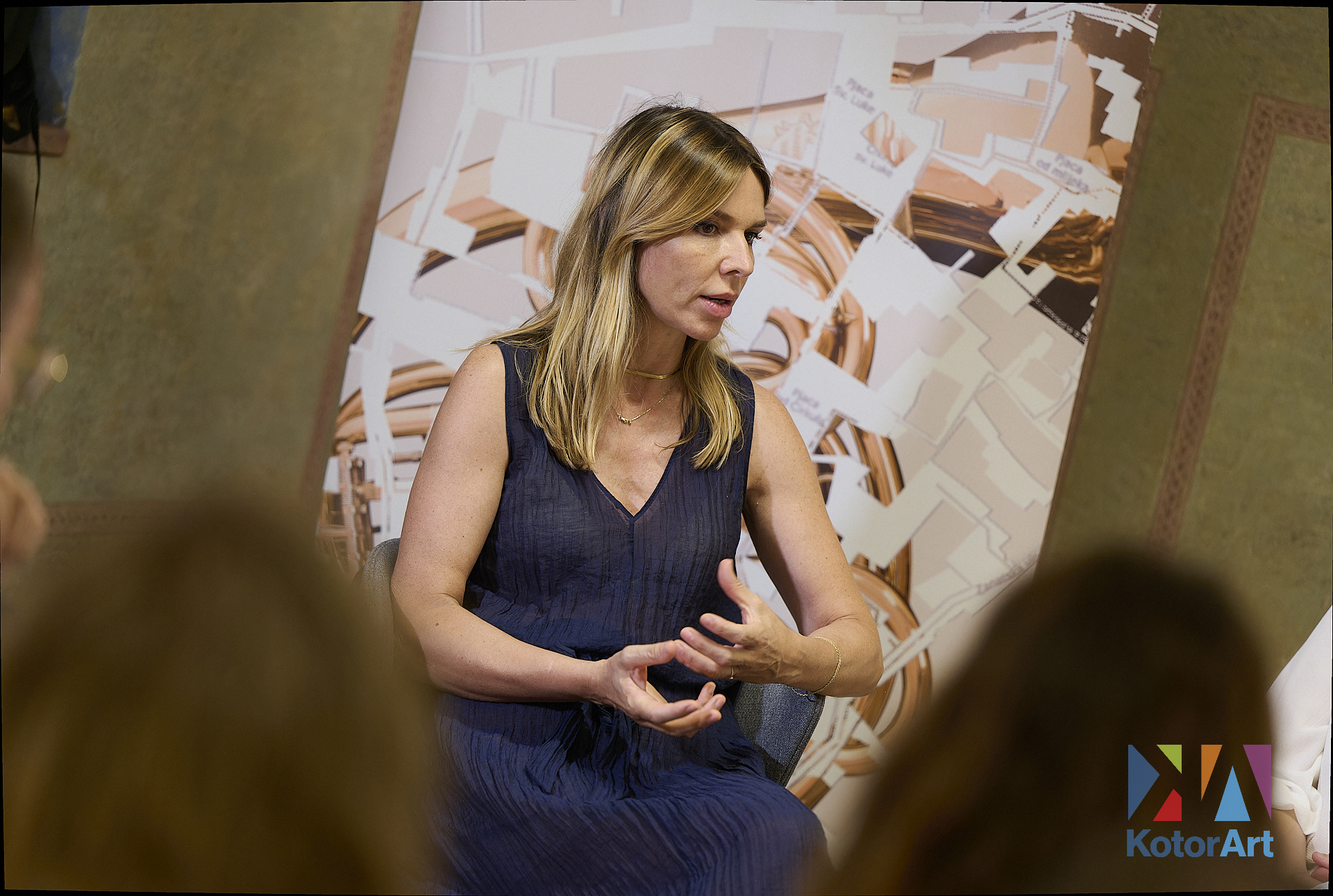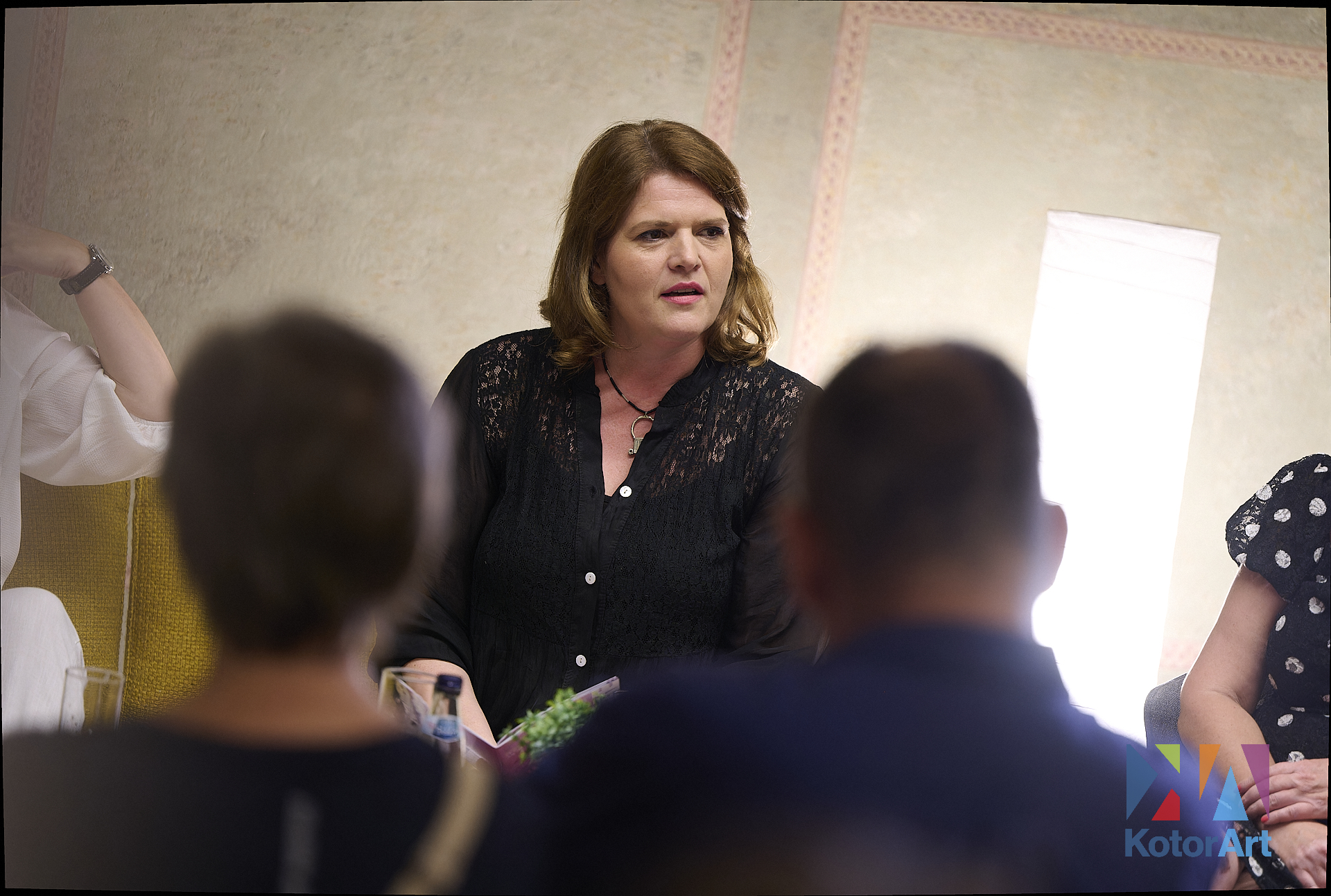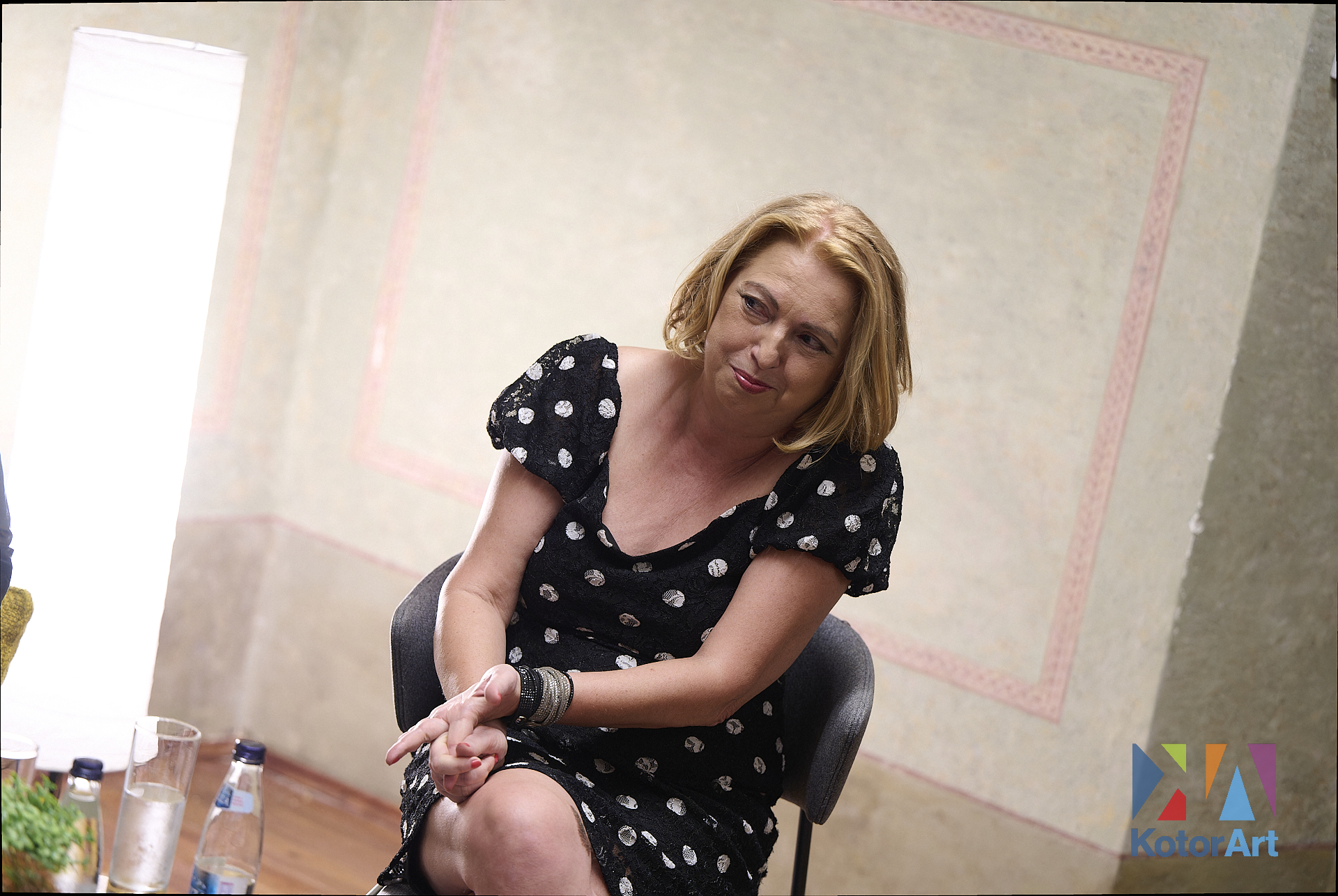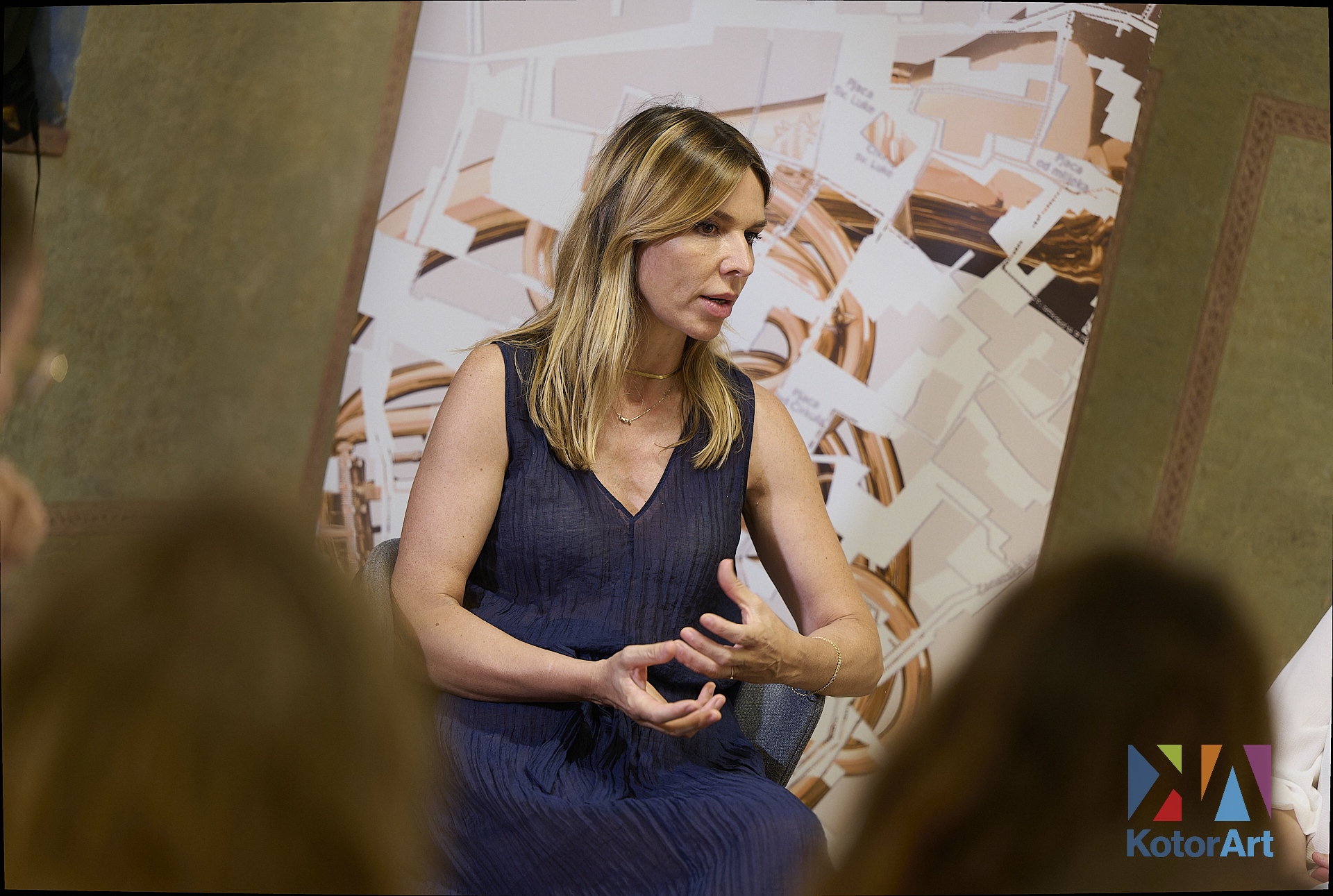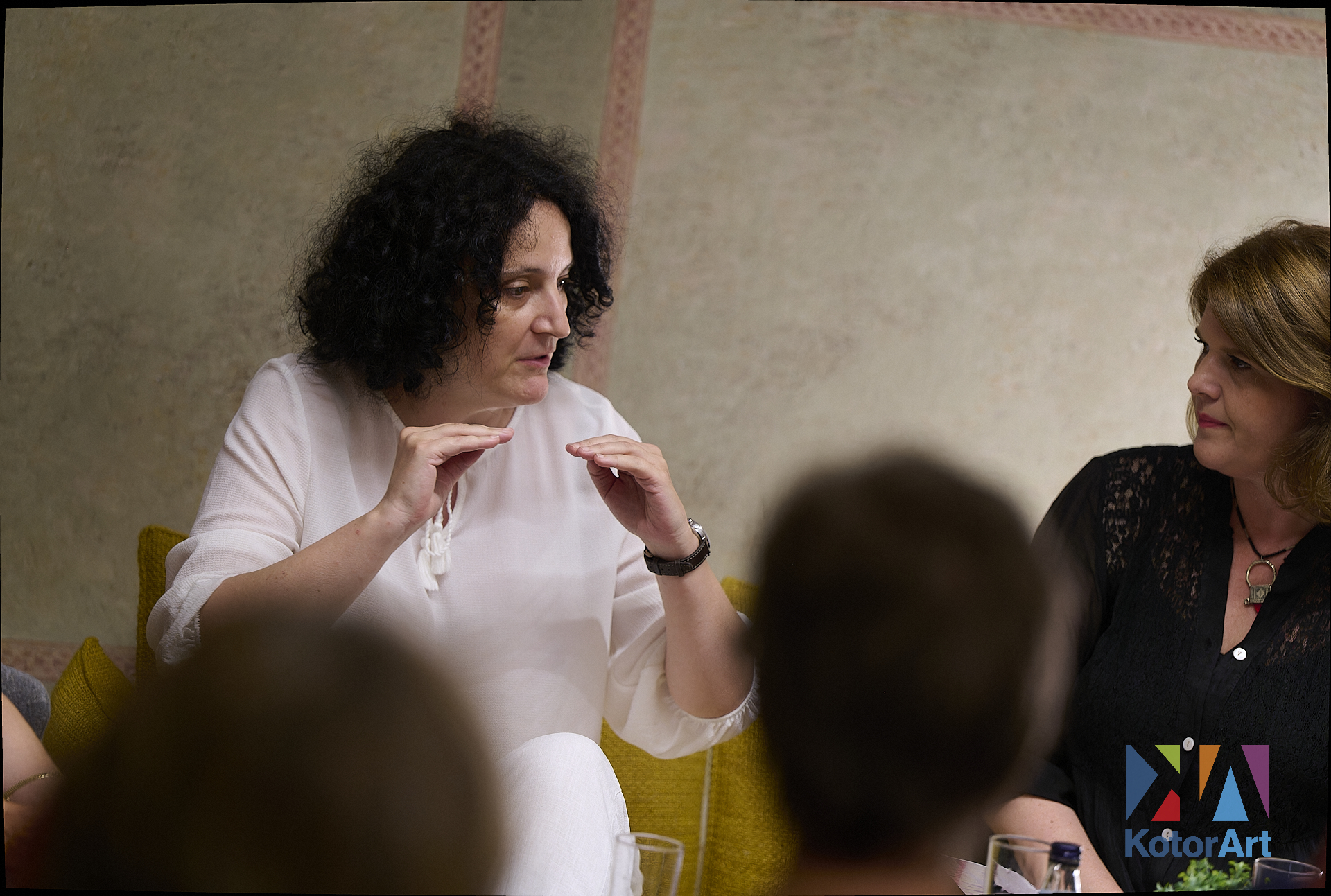Vox Feminae: Highly Inspirational and Significant KotorArt Philosophers’ Square
This year’s Philosophers’ Square took place from July 24 to 26 under the title Vox Feminae. The three-day artistico-debating program brought together around twenty women from different generations, originating from diverse yet closely related areas of the Balkan region. What connects them is their excellence in work and perseverance in addressing current societal trends. The program’s focus was on female creativity, women’s rights, gender equality, as well as the misuse of prenatal tests for selective abortion.
The participants of the program included visual artist Andrijana Vešović, better known as Zombijana Bones, award-winning writer Lejla Kalamujić, conductor, theater director, and composer Karmina Šilec, musicologists Dobrila Popović and Tomáš Slavický, the executive director of the Center for Women’s Rights, Maja Raičević, gynecologist and geneticist Amira Fazlagić, along with the chief editor of the program at the Public Institution Museums Kotor, feminist and anti-fascist activist, Jelena Vukasović. The project’s creator, conductor, and program moderator was Dragana Jovanović.
Since the project was of an artistico-debating nature, the performances by the Collegium+ choir, as well as sopranos Petra Radulović and Ljiljana Lišković, mezzo-soprano Višnja Radosav, tenor Vladimir Čabak, and pianist Oleksiy Molchanov, complemented and thematically rounded off the evenings with a carefully curated repertoire.
The first night of the Vox Feminae program, titled Dara’s Regulus, gathered admirers of the work of this revolutionary, visionary, and prominent artist. The jury president, music professor Dobrila Popović, presented the Darinka Matić Marović Award to conductor Karmina Šilec. Professor Popović read the jury’s rationale while artist Šilec warmly thanked the festival for the award and emphasized the importance of organizing public discussions on such significant topics, encouraging female artists to continue their work and creativity. The evening’s guests, Andrijana Vešović, Lejla Kalamujić, and Karmina Šilec herself, discussed their work and the challenges they encountered during their career development. The evening was rounded off with an exceptional performance by the Collegium+ choir. “The Collegium women” performed numerous pieces, among which stand out, symbolically with the theme of the evening, Favus distillans, a chant for the Feast of Saint Ursula and the Order of 11,000 Virgins by Hildegard von Bingen (1098-1179), Đevojko Moja and Mlad se Momak, based on folk songs from Kolašin and Zeta by Nina Perović (1985). The performance concluded with joyous applause from the audience as they sang Boko, Moja Boko by Božidar Ivanišević (1920-2012) as a tribute to their professor Darinka Matić Marović. The evening was moderated by director Branislava Stefanović.
European Operas Inspired by Montenegrin Women
On the second night of the Vox Feminae program, titled Montenegrin Woman as Inspiration, the audience had the opportunity to hear for the first time excerpts from newly discovered operas Milica and Jelena, performed by sopranos Petra Radulović and Ljiljana Lišković, mezzo-soprano Višnja Radosav, and tenor Vladimir Čabak, accompanied by pianist Oleksiy Molchanov. Musicologists Dobrila Popović and Tomáš Slavický spoke about the operas. KotorArt, whose members researched and uncovered these valuable and significant works, introduced two operas to the Montenegrin public that are inspired by women from Montenegro. In both operas, despite being authored by different composers, Montenegrin women are depicted as devoted mothers. Despite the climates they lived in and the traditional frameworks they belonged to, they managed to rise above such highly traditional and patriarchal surroundings. Milica, by Italian violinist, writer, and composer Marco Anzoletti, was composed in 1897 in Milan and had not been performed until now. The KotorArt audience had the privilege of witnessing the world premiere of three excerpts from this opera. On the other hand, Jovana, composed by Czech composer Jaroslav Vogel, was performed at the National Moravian-Silesian Theater in Ostrava in 1939. The audience attentively followed the stories behind these two works and greeted the performances of the excerpts with enthusiastic applause.
#Željena
The third night of the Philosophers’ Square program was exclusively reserved for a debate on a very significant and current topic in Montenegro. The theme, titled #Željena, was inspired by the campaign addressing the misuse of prenatal tests and the issue of selective abortions, known as #Neželjena, initiated by the Center for Women’s Rights, with the support of McCann Podgorica and McCann Belgrade agencies. Maja Raičević, Dr. Amira Fazlagić, and Jelena Vukasović discussed the patriarchal value system and gender discrimination in Montenegro and the broader Balkan region. The evening’s moderator was conductor Dragana Jovanović. The debate was organized at the Creative Hub in Kotor, starting at 9 p.m., and the audience actively participated in the discussion on this very important topic right from the beginning.
The KotorArt International Festival is held with the patronage of UNESCO, the Ministry of Culture and Media and the Municipality of Kotor, the support of the European Union, as well as the support of eminent sponsors and a wide network of partners from the country and abroad. Additional information about the planned festival programs can be found on the Festival’s website www.kotor.art.
